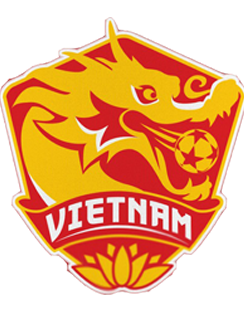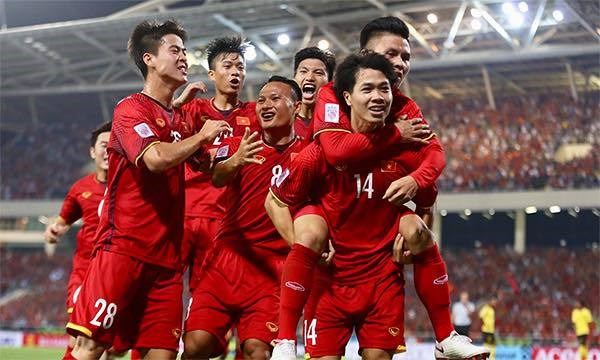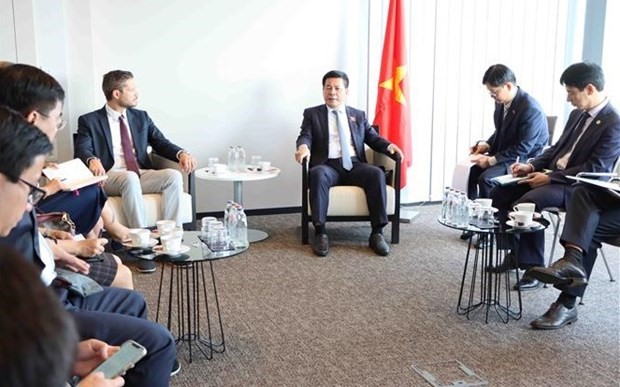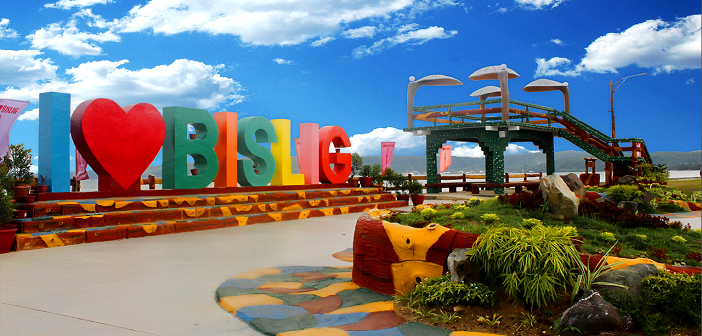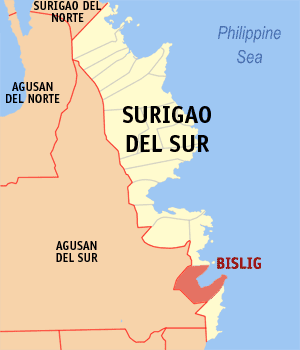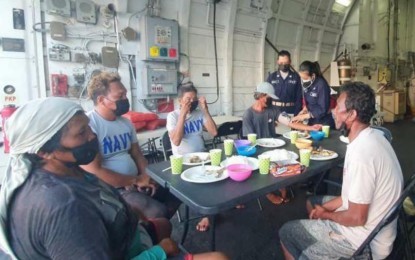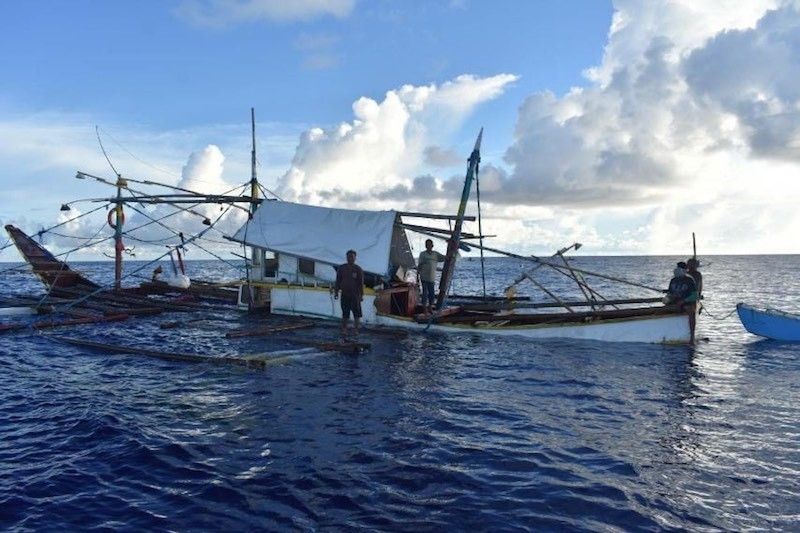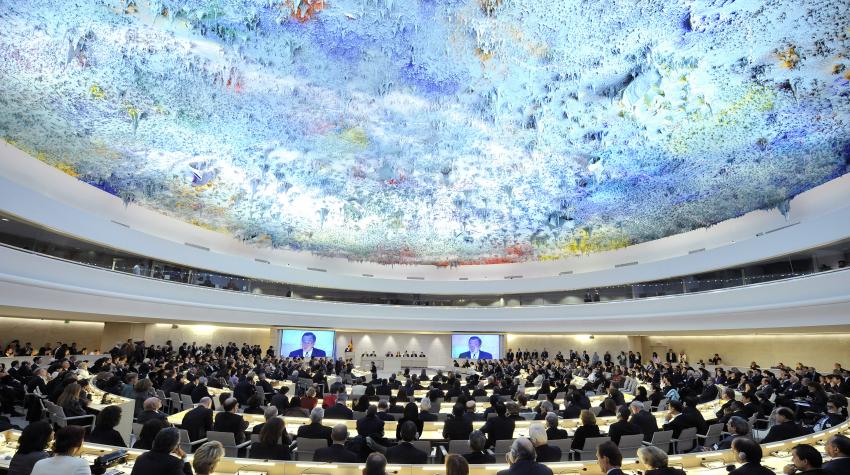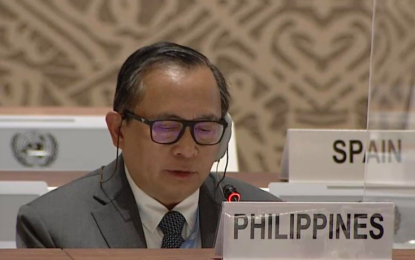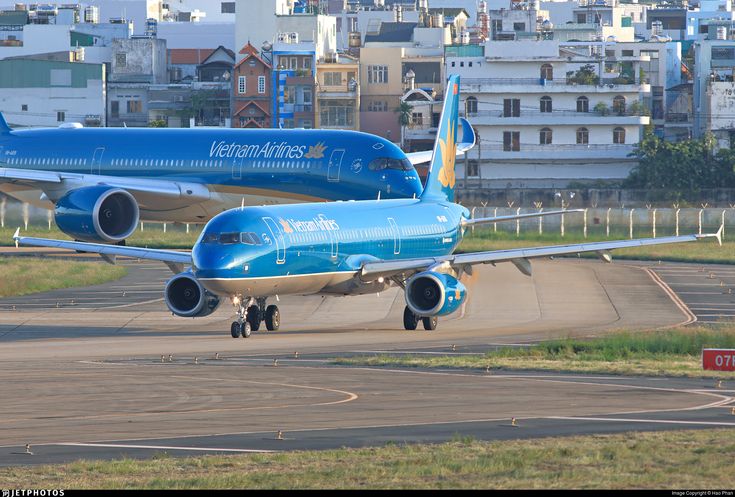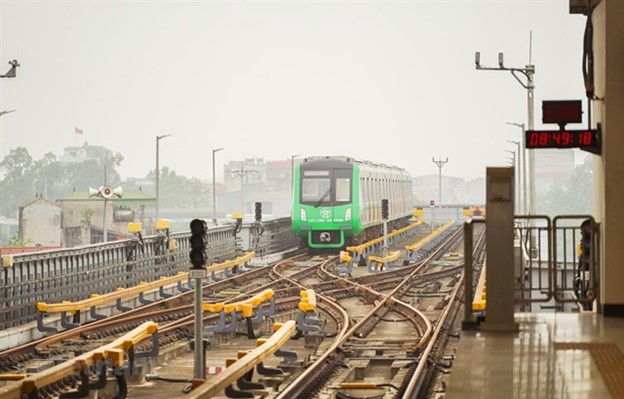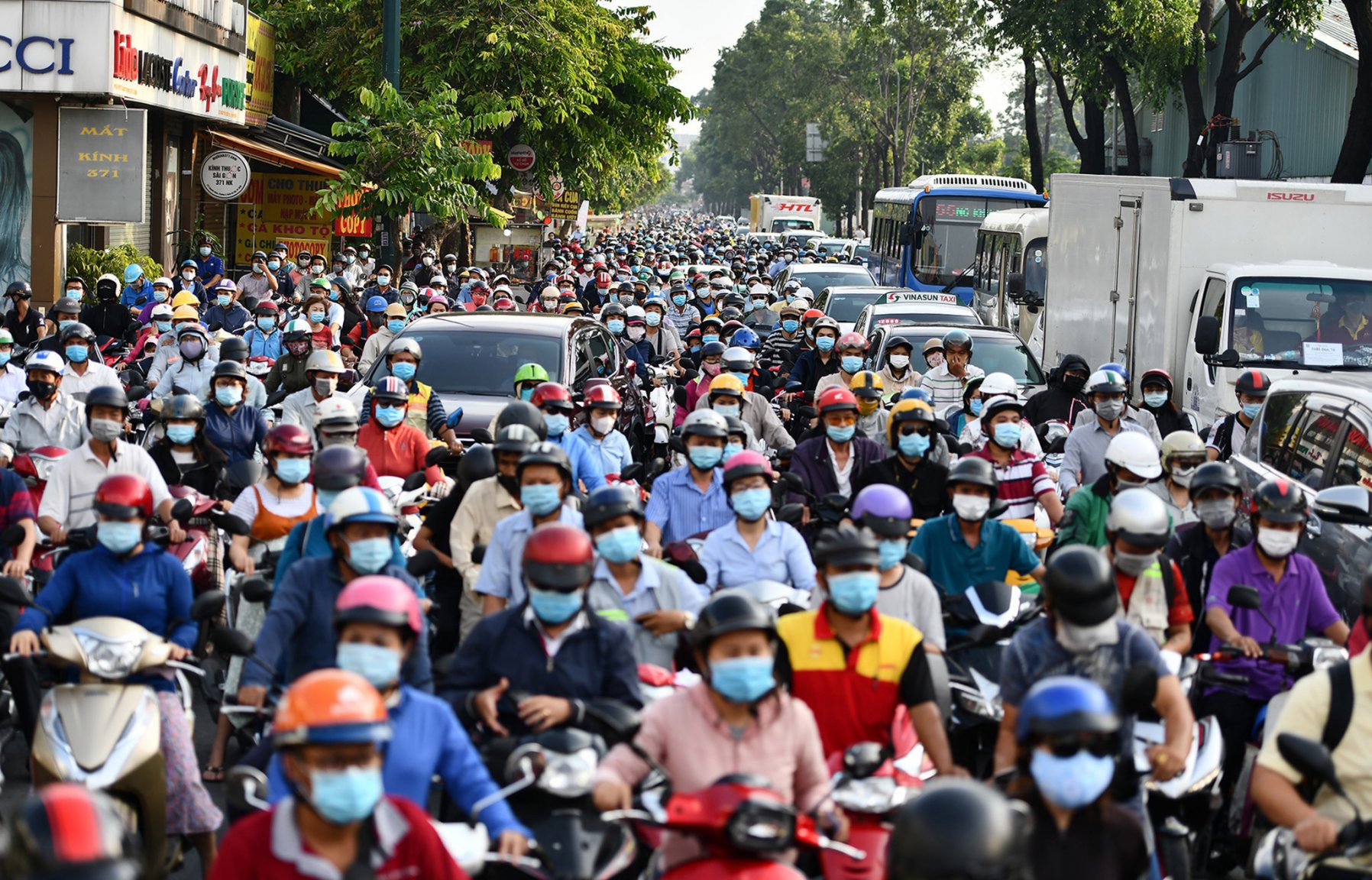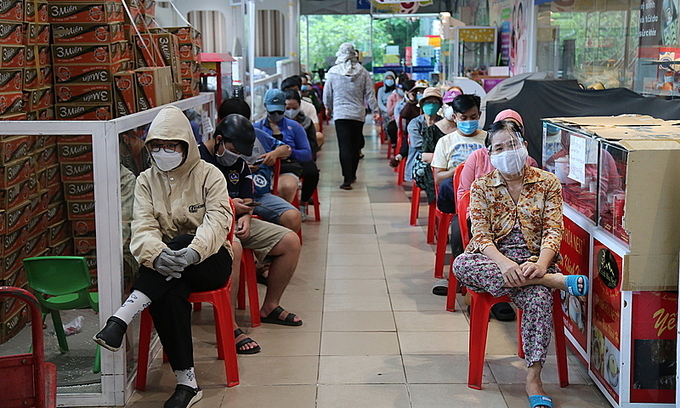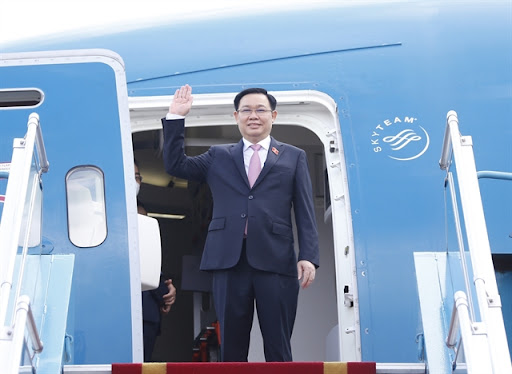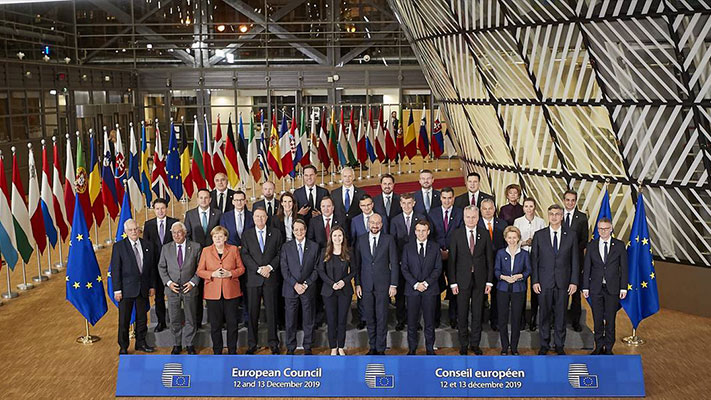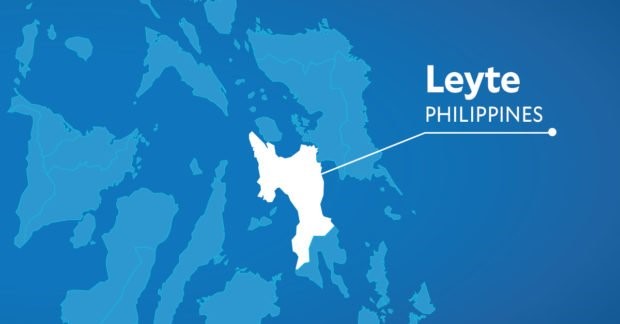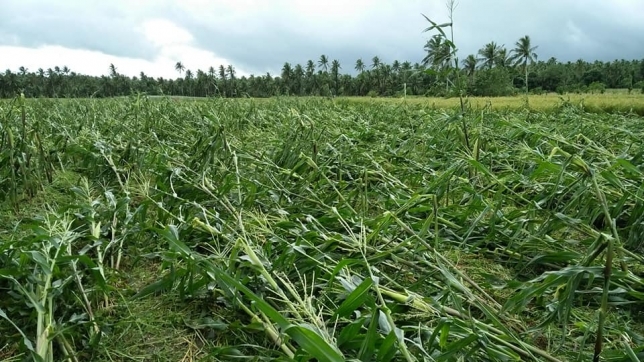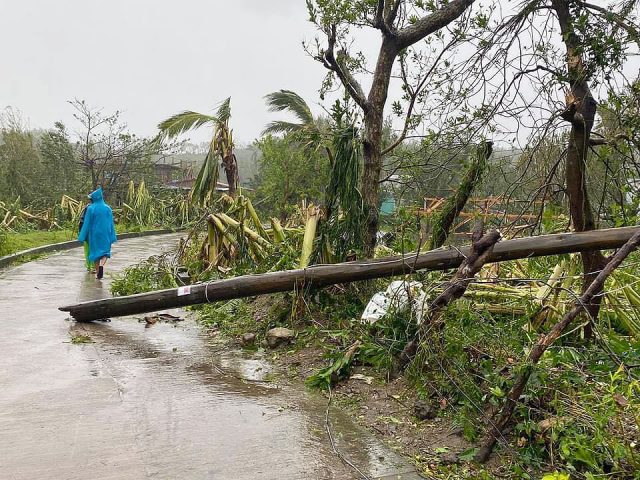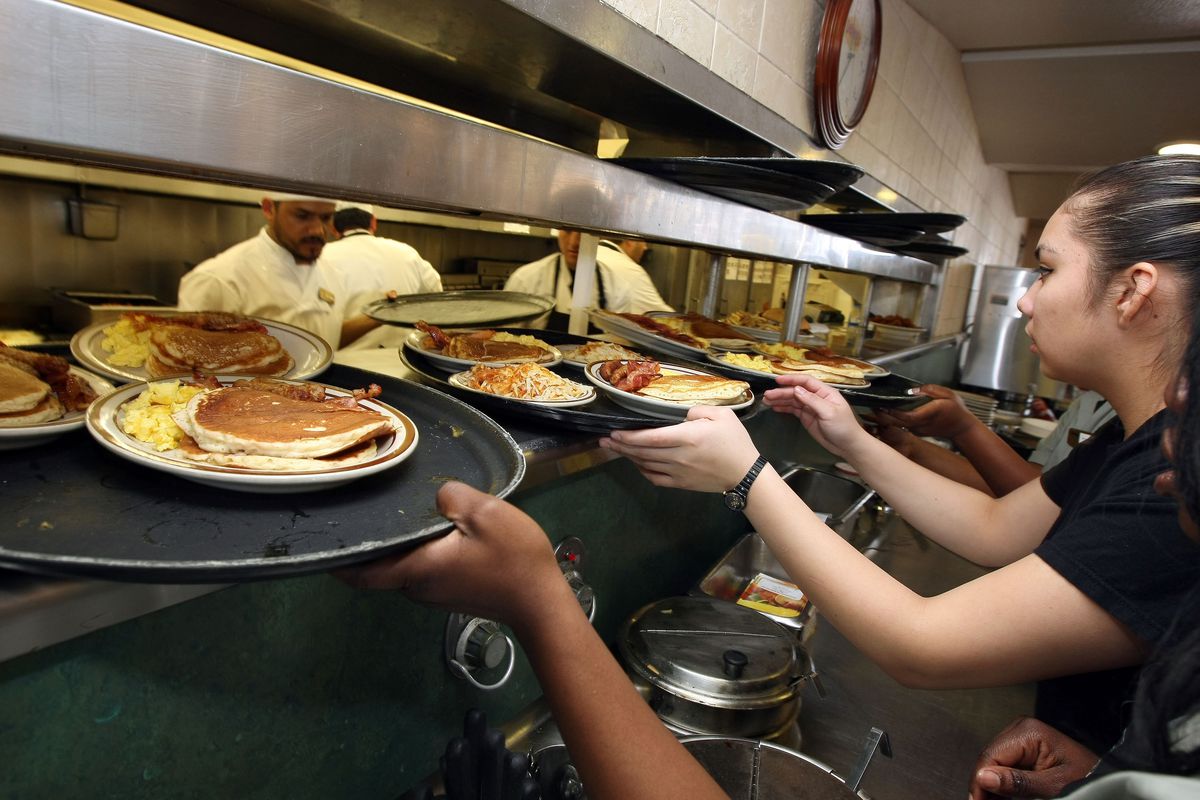-
Posts
2,719 -
Joined
-
Last visited
Content Type
Profiles
Forums
Downloads
Everything posted by ASEAN NOW News
-
The ongoing coronavirus resurgence has been affecting the lives of many children, leaving thousands orphaned with an uncertain future. Khanh Nhu, 13, was left an orphan by the Covid-19 wave sweeping through HCMC that took away her father, mother, and grandfather. Nhu's first day of class on Monday was at the home of her maternal grandparents in southern Dong Nai Province. She began the new school year with new clothes, books, and friends. "All the things that are familiar to me are in HCMC, including the ashes of my parents and my grandfather," she told VNE. A few months ago, she and her younger brother lived with their parents and grandfather in an apartment on Giai Viet Street, District 8. Nhu is among a long list of unfortunate children in HCMC whose parents or custodial grandparents succumbed to the deadly diseases. Khanh Nhu (L) and her brother now live in their grandparents' house in Dong Nai Province. Photo courtesy of Nguyen Thi Huong, Nhu's grandmother/ via VNE According to vietnamtimes.org.vn , over 1,500 children in HCMC have lost their parents to the pandemic, according to the municipal Department of Education and Training. At least 10,073 children, mostly primary and secondary students, and nearly 3,400 teachers and educational staff have contracted the virus. Dr. Le Minh Thuan, lecturer at HCMC University of Medicine and Pharmacy, told Tuoi Tre that being left orphaned is a trauma that might last for years or forever. Such a loss might also take a toll on their physical development and education, leading them astray, and even leaving negative consequences for themselves and society. He called on all localities to thoroughly investigate and compile lists of orphans and work with psychologists, benefactors, and charity organizations to provide timely, long-term support and psychological reassurance. City officials on Sept. 11 announced all children who lost parents in the pandemic would receive monthly support, scholarships, and tuition waivers until they are 22. Orphans under four years old will receive a monthly allowance of nearly US$ 40 until they turn five. Those aged five and above will get US$ 24 a month. The orphaned children will also be granted medical insurance cards and tuition waivers until 16 and will be eligible for social benefits till 22 if they continue their education. Children undergoing Covid-19 treatment, meanwhile, will be granted VND1 million, VND80,000 for their daily meals, and all hospital fees related to the pandemic will be paid for, VNE reported. Many organizations also launched projects to lend the children a helping hand. Nguyen Ngoc Nhung, vice chairwoman of the city unit of the Ho Chi Minh Young Pioneers Organization, said: "The Ho Chi Minh Young Pioneers Organization has launched a program sponsoring annual scholarships to the orphans, each worth US$ 132 per one student until they graduate from high school. Those from underprivileged families will also enjoy the financial support, said Nguyen Ngoc Nhung, vice chairwoman of the organization" The program has attracted over 150 individuals and groups, raising over 400 scholarships that worth nearly US$ 263. A child outside a Covid-19 quarantine facility in HCMC's Thu Duc City in June 2021. Photo: VNE Notwithstanding the dire situation many orphans face, life goes on. The children still must continue with their everyday rituals, including learning, to ensure their future. As the fourth wave continues to rage and social distancing order strictly deployed in many places, they join other students across Vietnam to attend online lessons, which are supposed to take place in physical classes. While many students and parents find virtual learning ineffective and troublesome, many households still struggle to afford technological devices or Internet connections. The Hanoi Department of Education and Training has collected 2,345 devices, including computers, laptops, smart phones, and other equipment to help needy students catch up with their online curriculum. Many of the donated items have reportedly been handed to families who previously couldn’t afford them. The department aims to achieve the “dual goals” of ensuring the safety of teachers and students and maintaining qualified teaching and learning results. A family gets learning devices from a supporter. Photo: Lao Dong According to research published in British medical journal The Lancet in July 2021, more than 1.5 million children worldwide have lost a parent, custodial grandparent, or other secondary familial caregivers to Covid. Another study by the US CDC, USAID, World Bank, and the University of London found that globally, for every two people who died of Covid one child lost a parent or caregiver.
-
Vietnamese President Nguyễn Xuân Phúc is welcomed at Jose Marti International Airport in Havana. — VNA/VNS Photo Thống Nhất HAVANA — President Nguyễn Xuân Phúc and a high-ranking delegation from Vietnam arrived in Havana on September 18 morning (local time), beginning a three-day official visit to Cuba at the invitation of First Secretary of the Communist Party of Cuba (CPC) Central Committee and President of Cuba Miguel Díaz Canel. The Vietnamese President was welcomed at Havana Jose Marti International Airport by Politburo member, Vice President of Cuba Salvador Valdés Mesa and officials of the Cuban Ministry of Foreign Affairs as well as Vietnamese Ambassador to Cuba Lê Thanh Tùng, the embassy’s staff and representatives of the Vietnamese community working, living, and studying in the country. Vietnam and Cuba established diplomatic relations in 1960. Cuba always took the lead in supporting Việt Nam’s resistance war to regain national independence and reunification. President Phúc’s visit to Cuba reflected Vietnam’s policy of promoting relations with priority partners and traditional friends. It is an opportunity for Việt Nam to affirm its solidarity and strong support for Cuba in a challenging period, Deputy Minister of Foreign Affairs Đặng Hoàng Giang had said. It is the first visit to Cuba by a senior leader of the Vietnamese Party and State after the 13th National Congress of the Communist Party of Vietnam. President Phúc is also the first foreign head of state to visit Cuba after the Caribbean country successfully organised the 8th National Congress of the Communist Party of Cuba. Over the past years, the Vietnamese Party, State, and people have actively supported Cuba in food issues. In return, top leaders of Cuba directly instructed the early supply of COVID-19 vaccine and technology transfer to Vietnam when the Southeast Asian country proposed. During the visit, Vietnamese and Cuban leaders will discuss to further close coordination and concretise important collaboration areas between the two nations, and to deepen their solidarity in the new period. President Nguyễn Xuân Phúc is scheduled to hold talks with First Secretary of the Communist Party of Cuba (CPC) Central Committee and President of Cuba Miguel Díaz Canel; and meet with Prime Minister Manuel Marrero Cruz, and President of the National Assembly of the People’s Power and President of the Council of State Esteban Lazo Hernández. — VNS
-
Golf is a game that is full of tips. If you regularly practice around other golfers, or if you play with a regular group of friends, you are sure to hear countless tips each time you visit the range or the course. Keep your head down. Change your grip. Adjust your stance. There are numerous tips that can be sent your way, and you have probably heard more than your share over the years. The sharing of tips is not only a way to potentially improve the play of other golfers, but it is also a way to promote camaraderie with the discussion that golf tips often encourage. Unfortunately, there is a downside to sharing tips – most of them are useless. Sure, golfers mean well when they share a tip with their fellow player, but that doesn’t mean the tip is actually going to help in the end. The average golfer is not a golf instructor, and is really not qualified to be offering up advice as a result. Anytime you receive a tip while out on the course, you need to be careful to consider the source. With that said, there are still plenty of golf tips which can help you play at a higher level. Following, you will find a list of the top ten swing tips ever offered up in the game of golf. These are tips which can apply to the swing of nearly any player, so feel free to put them all to use in your own game. Please note that all of the tips below are written from the perspective of a right handed golfer, so you will need to reverse them if you play left handed. Let’s get on to the list! #1 – Take Your Time It is easy to rush in the golf swing. After all, you are probably trying to hit the ball a significant distance, especially if you are standing on the tee, so it is only natural to swing as hard and fast as possible. However, most of the time, that level of effort is going to do you more harm than good. The best golf swings tend to be those that allow speed to develop gradually, with the club accelerating all the way down until it arrives at impact. You want to pay particular attention to taking your time when it comes to the transition. Most amateur golfers rush through the transition, quickly shifting from backswing to forward swing as they hurry to hit the ball. Sadly, this is where many players get off track – and there isn’t enough time between the transition and impact to fix what has gone wrong. You can easily create a number of different problems as a result of a faulty transition, with the slice being among the biggest issues to surface when you rush at the top. During your next trip to the driving range, make it a point to take a bit of extra time at the top of your swing. Start by hitting some soft wedge shots while using an extra-slow transition. Just pitching the ball a short distance down the range while keeping your transition slow will help you to feel how important this part of the swing is to your overall performance. As the clubs get longer and the swing gets faster, be sure to keep track of your transition to ensure that it doesn’t speed back up unnecessarily. #2 – Pick Out a Specific Target One of the most-important things you can do for your swing, and for your game as a whole, is to pick out a very specific target for each and every shot that you hit. When you have a specific target in mind as you swing, you will be far more likely to stay committed to the swing at hand. Indecision is a sure sign of doubt in your game, and doubt is something that can throw you off track in a hurry. It doesn’t matter what kind of shot you are hitting; it is always important to have a target picked out before you take your stance. While most golfers do a good job of picking a target while they are hitting an approach shot, the same cannot be said off of the tee. When the average golfer takes their driver from the bag in order to hit a drive, they usually just aim ‘for the fairway’ before swinging away. That isn’t good enough, as far as target-selection is concerned. Rather than aiming for the fairway in general, pick out a specific target in the distance that you can use to guide your swing. Once you get into the habit of picking specific targets, you will see just how useful this strategy can be. You will likely notice that there is more confidence and commitment behind your swings, and you will also start to feel like you have more margin for error on your shots. The mind is a powerful thing on the golf course, and training your mind on a very specific target before each swing can pay big dividends. #3 – Relax Your Grip It is hard to provide tips that relate to the grip, because everyone feels comfortable holding onto the club in their own way. There are a variety of different grips used in the game, and many of them are capable of producing quality golf. However, there is one golf grip tip that can be applied across the board by every golfer, and it is the fact that the grip should be relaxed in order to promote club head speed and a clean strike. Many golfers squeeze onto the grip too tight as they swing, and those players lose power as a result. Of course, trying to swing the club while holding on lightly to the handle requires you to walk a fine line, because you need to hold on tight enough to keep control of the club from start to finish. You can’t have the club flying out of your hands as you swing, so the grip does need to be tight enough to hold on – but no tighter. Work on finding a grip pressure that will allow you to swing freely while still controlling the club and you will be a better golfer for the effort. #4 – Quiet Hands in the Takeaway This is a point that could benefit amateur golfers perhaps more than any other. The average player uses their hands far too actively during the takeaway phase of the swing, and they pay the price when the club is off-plane by the time the backswing has finished. If you would like to keep the club in a good position all the way through to the top, you need to keep your hands out of the takeaway while your shoulders do all of the work. To move the club back away from the ball, focus on simply turning your left shoulder away from the target. If you can make that one move successfully, you will be on your way to a perfect takeaway. In reality, the correct takeaway is rather simple, but most golfers overcomplicate it and wind up making mistakes. Specifically, you want to focus on your wrists during the early part of the backswing – if your wrists are quiet and stable, you should be on the right track. Making the change from a takeaway that is driven by your hands to one that is driven by your shoulders can be difficult, so you will need to invest some time on the range before heading to the course. Start with some of your shorter clubs and gradually work your way up to the long clubs as you get more and more comfortable with this style of takeaway. In the end, you should be left with a swing that is more-reliable and just as powerful as the one you left behind. #5 – Play to Your Strengths Before hitting any shot on the course, you are going to be faced with a series of choices. Which club are you going to hit? What are you going to use as your target for the shot? Are you going to try to hit the ball higher or lower than usual? These and many more questions will need to be answered during the planning phase prior to taking your stance. As you work through this process, one of the most important things you can do is to keep in mind the strengths that you have as a golfer. By playing to your strengths – and away from your weaknesses – you can achieve better outcomes in the end. It is tempting to pretend like you don’t have any weaknesses in your game, but that simply isn’t true for any golfer in the world. Even the best players in the game have weaknesses that they try to avoid whenever possible. It would be great to be able to hit any shot at any time depending on what the course throws your way, but that simply isn’t a skill that you are likely to possess. Don’t fall into the trap of trying shots you really can’t execute just because you want to prove that you can do it. The beauty of being able to pick your own shots on the course is the fact that you can make decisions which suit your strengths. Be smart about club selection and avoid those shots that really give you trouble. That isn’t to say that you should just give up on trying to fix shots that give you problems. During your practice sessions, you should absolutely work on improving your game in the areas that it is weakest. However, you should still play to your strengths on the course. As you get better in some of your weak areas, you may not need to avoid them in the future. Just remember, the driving range is for practice and improvement, and the course is for scoring your best. When on course, always pick the shot that gives you the best possible chance to succeed. #6 – See the Club Hit the Ball Okay – so this is a pretty basic tip, and it is one you have probably heard before, but it still warrants a spot on our list. When you swing down through impact, you need to make an effort to ensure you actually see the club hit the back of the ball. This is an easy point to take for granted, but it is extremely important to the quality of your play. When you watch the club hit the ball, you will be more likely to make solid contact, and solid contact is essential in the quest to lower your scores. This is a tip that is often considered to be the same thing as ‘keep your head down’, but it is actually different in a meaningful way. If you focus on keeping your head down, you are going to limit the movement that takes place in your shoulders because you will be trying to keep your head quiet. You want your shoulders to be able to turn through the ball on the way down, so you don’t want to think about keeping your head still. It is actually okay if your head moves a little bit through impact, as long as your eyes are watching the ball the whole time. #7 – Stay Perfectly Still While Putting Moving onto the greens, one of the best tips you can receive while putting is to keep your body as totally still as possible throughout the stroke. Unlike the full swing, when you need plenty of help from your entire body in order to produce speed and power, putting is all about precision and control. It takes barely any effort at all to roll the ball toward the hole, so you will want to focus on the precise control of your stroke in order to have success. One way you can control the club (and the ball) beautifully is by keeping your body as still as possible while the putter swings. To keep your body still while still making a proper stroke, you need to understand what parts of the body are actually responsible for moving the putter back and forth. Ideally, it will be the job of your shoulders to move the putter, while your arms and hands go along for the ride naturally. By placing the control of the stroke in your shoulders, you can eliminate much of the unnecessary movement that often causes putts to veer off track. As you swing the putter, your lower body should be perfectly still, as should your head and your torso below the shoulders. One good way to focus on keeping your lower body still as you putt is to think about the position of your kneecaps. These are two specific points that are easy to focus on, and you will instantly be able to tell if they happen to move. While the putter swings, focus on keeping your kneecaps perfectly still in the position that they held at address. If you can accomplish that simple task successfully, there is a good chance you will roll plenty of good putts throughout the day. #8 – Don’t Slide As far as golf tips go, this is a simple one. Your only job in order to comply with this important tip is to avoid sliding during the swing. That goes for both directions – you don’t want to slide away from the target, and you don’t want to slide toward the target, either. Ideally, you will be able to keep your weight in the middle of your stance as you swing back, and your weight will only move forward toward the target in the downswing as a result of your rotation rather than a slide. Balance is crucial in golf, and staying away from any kind of sliding action will quickly make you a better player. There are two common points in the golf swing for a player to slide. The first is during the takeaway. As the club starts in motion, some players will slide away from the target, allowing their body weight to move with the club. The other common spot for a slide in the golf swing is during the transition, when some players will slide their lower body toward the target before they get started with any kind of rotation. Obviously, you want to avoid both of these mistakes in order to make your swing as powerful and consistent as possible. To steer clear of the backswing slide, focus on the position of your right knee. As long as your right knee holds its position while the swing is starting, you should be able to steer clear of that early slide to the right. As far as the transition slide goes, it’s all about starting the move down with the rotation of your lower body toward the target. Do your best to turn your left hip open to the target as your downswing begins. If you can make that move reliably, there is little chance you will wind up with a slide. #9 – Finish the Swing The finish position that you reach when your golf swing has concluded will tell you a lot about the swing that you have made. Golfers will a full, well-balanced finish position are usually those who use their bodies correctly throughout both the backswing and downswing. On the other hand, players who fail to get all the way to a full finish – or fall off balance somewhere along the way – need to make some corrections. When you get a chance to watch some golf on TV, pay attention to how the players hold their finish positions. Most top players will hold their finish until the ball has landed, displaying great control and balance. This should be your goal. By swinging all the way through to the finish, you will typically accelerate the club through impact, which is an essential part of good ball striking. Work on reaching a balanced finish while practicing on the range and commit yourself to finishing each swing in the same fashion when you get out on the course. #10 – Have Fun So this really isn’t a swing tip per se – but it is one of the most important tips that you can receive. When you are at the golf course, whether you are practicing on the range or playing a round, you need to remember to have fun at all times. This is a game! Too many players take the game too seriously, and they wind up taking the fun out of it as a result. If you aren’t going to have fun while you play, you might as well find something else to do. Before your next round, take a few moments to think about why it is that you are spending time on the golf course. What do you hope to get from the experience? What is it that draws you back out to spend your money on golf time and time again? Most likely, the answers that you come up with will be things like spending time outdoors, spending time with your friends, getting exercise, and more. Sure, you want to play well along the way, but that isn’t the main motivation for most people to hit the links. By keeping your motivation in mind, and keeping your mind focused on having fun first and foremost, you will find that golf becomes a far more-rewarding experience in the end. We hope the ten tips listed above are helpful as you work on your own game. Golf is a tremendous challenge, which is a big part of why so many people love to play. Embrace the challenge, use the tips on this list to help you play a bit better, and encourage those around you to play their best as well. Golf tips will always be a part of the game, and they are a big part of what makes it so much fun. Good luck out there! Originally posted on Golf Info Guide
-
Many Vietnamese language centers are providing one-on-one classes or classes for a group of 2 – 3 if requested. According to Vietnam Times, a representative of the Learn Vietnamese with SVFF center said they were supporting 10,000 foreigners studying Vietnamese online. The center’s teaching staff is elated that they can meet friends from all over the world in their work. They even receive free health advice from students who are doctors. The Vietnamese Language Studies center also records a sharp increase in the number of students registering for online courses, from 7% in 2019 to 73% in 2021. Assessing the data, the center’s representative believed that online classes are not less advantageous than face-to-face classes. Foreigners learning about traditional Vietnamese culture in traditional Vietnamese language classes. Photo: Vietnamese Language Studies Fanpage “Online classes have many perks, such as convenience. You do not need to travel to school in adverse weather conditions. You can record the lessons for further practice after class, and teachers can share with student’s audio recordings, photos and videos to make the lessons livelier and more interesting,” the representative of the Vietnamese Language Studies center. Technologies are bringing people closer; they can communicate with each other from wherever they are on Earth as if they were physically facing each other in a class. Many students at the Vietnamese Language Studies are proud that they could write on paper their reasons for going out and show them to the Covid prevention checkpoint. Some others can join the volunteer groups in their residential areas. Some said they felt as if they were Vietnamese citizens when they went to the supermarkets to buy necessities for those in need. They were happy they could apply what they learned at school and their lecturers were elated that their works proved helpful to others. 44 weeks to use Vietnamese fluently The Foreign Service Institute ranks the Vietnamese language at Category IV on the language difficulty rankings, which groups together languages with significant linguistic and/or cultural differences from English. For a native English speaker, this means that in theory, it would take 44 weeks or 1,100 hours to use Vietnamese fluently. According to Carol Dinh, a teacher with rich experience teaching Vietnamese to foreigners, to improve Vietnamese during the social lockdown, learners should spend at least 15 minutes per day to revise each lesson and find extra sources online such as language apps, movies, photos, and news. A one-on-one class led by Carol Dinh. Photo: Carol Dinh A new horizon An avid traveler, Argentinian Lulu Jarab, 37, came to Ho Chi Minh City 3 years ago. She used to spend most of her time discovering new destinations in Vietnam. As Ho Chi Minh City enters extensive social lockdown, Lulu could not go anywhere, so she found an online Vietnamese language teacher and entered classes twice per week. Lulu had wanted to do this since she first arrived in Vietnam, but learning Vietnamese proved to be an immense challenge. “If I must compare, Vietnamese is completely different from the languages I used before, including Spanish, Portuguese, English and France. With every lesson, I become a little better. I think it will take me a long time before I can speak Vietnamese fluently, but I will do my best,” Lulu said. Giulio affirms that learning Vietnamese is the best decision he has made during the Covid-19 pandemic. Photo: Giulio Iazzetta 27-year-old Giulio Iazzetta from Italy works as a business manager for a wine company in Ho Chi Minh City. Due to the nature of his work, Giulio often drove around the city to visit restaurants and hotels before social lockdown. When Ho Chi Minh City was placed under Order 16, Giulio started to learn Vietnamese. He found a suitable teacher via the groups for foreigners in Ho Chi Minh City. He had Vietnamese classes via Zoom 3 – 4 times per week and by now has completed 37 hours of online learning At first, Giulio was recommended not to study Vietnamese because it was not worth it. He was completely against this. “Learning Vietnamese becomes easier if you spend 2 – 3 hours every week focusing on it,” Giulio said. Giulio has gained memorable experiences during the social lockdown. He can now communicate more with the guard and manager of his residential building in Vietnamese. His relationship with his flat mate also improves as he helps his friend translate basic Vietnamese words. Giulio used to be able to speak only “hello” or “thank you” in Vietnamese. He can now read and understand simple words. The 27-year-old manager from Italy hopes to come back to the office soon so he can converse with his colleagues. “I am so grateful for the support I received when I first came to the company. Learning Vietnamese is a way for me to show them my respect and appreciation.” Giulio said.
-
An American expat (R) attends a Vietnamese class at a language center in Ho Chi Minh City's District 1. Photo by VnExpress/Dang Le. Back in September 2019, nine of ten expat respondents said they were happy with their life in Vietnam, compared to a global average of 74 percent. Has the sentiment changed in 2021? Then in 2019, according to e.vnexpress.net, the high rate put Vietnam second among 64 destinations around the world in an annual ranking compiled by InterNations, the largest global community and information site for people who live and work abroad with 3.6 million members. The survey that was conducted among 20,260 respondents representing 182 nationalities from 187 countries or territories. Vietnams had a remarkable climb up from 14th position out of 68 destinations that year. The Expat Insider 2019 survey covered quality of life, ease of settling in, working abroad, family life, personal finance, and cost of living. Negative points Vietnam however did lag behind in terms of digital life where it was ranked 51st, with, for example, just about half the respondents finding it easy to make cashless payments versus 79 percent globally. Another dissatisfying factor was the quality of the environment, which was rated negatively by 57 percent, versus 20 percent globally. Compared to Southeast Asian peers, Vietnam was the best destination in three of the five main indices – personal finance, cost of living and working abroad. The other two categories are ease of settling and quality of life. In 2019, the top 10 destinations on the overall index are: Taiwan, Vietnam, Portugal, Mexico, Spain, Singapore, Bahrain, Ecuador, Malaysia, and the Czech Republic. So where are we now? Firstly In 2020, the population of Vietnam was estimated to reach 97.58 million, indicating an increase by over a million people from the previous year. Vietnam is among the most populated countries in the ASEAN region. The urban population in Vietnam stood at approximately 36.35 million people. The major urban cities are Ho Chi Minh City, Hanoi, Can Tho, Hai Phong, Da Nang and Bien Hoa. Expats here???? In 2004, there were 12,600 foreign workers in the country, and by July of 2019 this figure had increased significantly. According to the Ministry of Labour (2019 data) there were about 83,500 expats in Vietnam. Since then, the pandemic has set in, and many businesses have either closed or had to reduce their work force. According to statista.com in 2020, the net migration rate in Vietnam was -0.25. (Persons leaving the country as net emigration (e.g., -9.26 migrants/1,000 population) was 0.25% in 2020.) Since the beginning of the Covid-19 pandemic, authorities have been adjusting visa policies for foreigners staying in Vietnam. This is making it more difficult to work in Vietnam if you do not have a work visa or a sponsor for making the necessary documents. In other words, if you are still working in Vietnam with a tourist visa or an illegal work permit, you are making money illegally in Vietnam. Leaving due to the delays in Vaccination Vietnam, to put it quiet, frankly, is still a developing country, so, understandably, still has many restrictions on social regimes. At a time when the Covid epidemic is still heavily affecting the economy, it is very necessary to conduct a vaccination program for all the citizens in the country. However, since Vietnam is still unable to produce vaccines, they must be purchased from other countries. That has meant that the vaccination program had to be held back until the vaccine demand in developed countries is met before it can be delivered to the people in other countries. In addition, foreigners initially were not given priority over domestic people when the Vietnamese government approves the vaccination list, so the possibility of receiving a vaccine is still hard for some expats. Although there are no official government figures available, with all these issues it is likely that the next round of Expat figures will drop. Only the Expat community can really tell if the numbers are still falling, as they may be saying goodbye to fellow expat workers, or even packing up and heading home themselves. Let us have your comments. Have many of your expat friends stayed or left?
-
President Nguyen Xuan Phuc is set to pay an official visit to Cuba from September 18 - 20 and then fly to New York in the US to attend the 76th session of the UN General Assembly. Photo: VNA Vietnam will pursue multiple goals, including promoting vaccine diplomacy during President Nguyen Xuan Phuc’s upcoming trip to Cuba and the United States, reported vietnamtimes.org.vn, citing Deputy Foreign Minister Dang Hoang Giang. President Nguyen Xuan Phuc will lead a high-raking delegation of the Vietnamese Party and State to pay an official visit to Cuba from Sep. 18 to 20. The visit is made at the invitation of Miguel Díaz-Canel, First Secretary of the Communist Party of Cuba’s Central Committee and Cuban President. Later, from Sep. 21 to 24, the President and the Vietnamese delegation will attend a general debate of the UN General Assembly’s 76th session and hold several bilateral activities in the US. The main purpose of the working trip will be to further realise the nation’s open foreign policy, although the visiting delegation will also strive to achieve multiple goals during the trip, Deputy Minister Giang told media outlets on September 16. Phuc’s official visit to Cuba reflected Vietnam’s policy of promoting relations with priority partners and traditional friends. It is an opportunity for Vietnam to affirm its solidarity and strong support for Cuba in a challenging period, Giang noted. According to the Vietnam Times, during the visit, Vietnamese and Cuban leaders will discuss to further close coordination and concretize important collaboration areas between the nations, and to deepen their solidarity in the new period. At the UN general debate, Giang said, Vietnam will send a strong message to international friends about its image of a dynamic and innovative, development-yearning, and peace-loving country with active and responsible contribution to the common work of the United Nations and the international community. UN’s Trust According to him, this is also a chance for Vietnam to show its appreciation for UN member nations for their trust and high confidence in Vietnam as a non-permanent member of the UN Security Council (UNSC) for the 2020-2021 term. It also affirms Vietnam's commitments and efforts to achieving more positive results at the UN, UNSC, and UN mechanisms and organisations in the coming time, including its candidacy for the UN Human Rights Council (UNHRC) for the 2023-2025 tenure. “Vietnam will clearly demonstrate its desire to work along with other countries to address current urgent issues, especially Covid-19 prevention and control. Therefore, apart from attending a high-level debate, President Phuc will meet with several heads of state and partners of Vietnam to discuss measures aimed at controlling the pandemic and outlining post-pandemic recovery plans,” said Deputy Minister Giang. Deputy Foreign Minister Dang Hoang Giang. Photo: VNA While in the US, the President will meet many heads of states and partners to exchange measures on pandemic prevention and post-pandemic recovery. At the same time, he will work to promote the support and transfer of vaccines. President to meet vaccine producers The President will meet leading vaccine producers of the US, eyeing commitments to fastest delivery of vaccine doses, treatment drugs, and medical supplies for Vietnam as many as possible. According to Giang, Phuc’s bilateral activities in the US will contribute significantly to boosting cooperation between Vietnam and the new US administration and fostering the growth of the Vietnam – US comprehensive partnership in line with the nations’ common goals and benefits. The US has so far given 6 million doses of Moderna and Pfizer vaccines to Vietnam through the global vaccine mechanism Covax. Vietnam has signed contracts to buy 51 million doses of Pfizer vaccine within this year, including 20 million doses for those aged 12 to 18, according to VnExpress. Pfizer is now the only vaccine Vietnam allows for mixed administration. As greenlighted by the Health Ministry, people receiving the AstraZeneca vaccine first could get the Pfizer shot the second time around in case of supply shortages and with prior agreement. Vietnam had administered over 30.4 million doses of vaccines by noon on Sep. 14, according to data from the National Immunisation Portal. Vietnam has to date received more than 35 million doses of Covid-19 vaccines of different types, mostly AstraZeneca via Covax, government support, and commercial contracts. https://vietnamtimes.org.vn/presidents-upcoming-trip-to-cuba-us-to-promote-vaccine-diplomacy-35958.html
-
Vietnam’s Covid-19 lockdown has constrained the global supply of coffee — and coffee prices could remain “relatively high” through 2022, said Fitch Solutions. According to cnbc.com, the Southeast Asian country is the world’s second-largest coffee exporter. The country is battling its worst Covid outbreak since the start of the pandemic, and a lockdown in its exporting hub Ho Chi Minh City has affected overseas shipments of coffee and other goods. Coffee Exports Fall In August, Vietnamese coffee exports fell 8.7% from July to 111,697 tons, Reuters reported, citing customs data. Between January and August, Vietnam exported 1.1 million tons of coffee — 6.4% lower than a year ago, but coffee export revenue rose 2% to around $2 billion, said the news agency. Vietnamese Coffee picker (File photo) The fall in Vietnam’s exports and production slumps in other top producers have boosted global coffee prices. Benchmark arabica coffee futures have jumped by around 45.8% this year, while robusta futures have surged 52.2%, according to Refinitiv data. Brazil, the world’s largest coffee producer, experienced waves of frost and drought that damaged its crops. Bad weather also affected Colombia’s harvest, and the emergence of the “mu” coronavirus variant in the country could lead to prolonged restrictions and labor shortages that worsen production, Fitch Solutions said in a report last week. “At the same time, we think that demand, at least in Europe and the US, will pick up in the coming months as the lifting of Covid-19 restrictions should enable coffee shops to re-open,” it added. The consultancy raised its 2021 forecast for the average price of arabica coffee from $1.35 per pound to $1.60 per pound. It also revised upward its projection for 2022 from $1.25 per pound to $1.50 per pound. Covid in Vietnam Vietnam — which shares a border with China — reported only 1,465 Covid cases and 35 deaths last year, according to data compiled by Johns Hopkins University. But the country’s cumulative cases exploded to more than 635,000 as of Tuesday, with over 15,900 deaths, the data showed. Like many of its Southeast Asian neighbors, Vietnam is struggling to contain the highly infectious Covid delta variant. Only 5.7% of Vietnam’s population has been fully vaccinated, official statistics compiled by Our World in Data showed. Authorities on Monday announced a two-week extension of restrictions in Ho Chi Minh City, Vietnam’s business hub and Covid outbreak epicenter, Reuters reported. Vietnam plays an important role in the global manufacturing supply chain. Movement curbs and factory closures to fight Covid have hit the country’s manufacturing production and exports — affecting global supplies of goods from coffee to clothing and semiconductors. Major brands affected Major sports apparel makers Nike, Under Armour and Lululemon; as well as chipmaker Samsung Electronics are among global companies that have faced disruptions in Vietnam. Factory making trainers for export (File Photo) Covid restrictions could soon be progressively lifted, so disruptions to Vietnam’s coffee exports are likely short-lived, said Fitch Solutions. Brazil’s coffee production should also bounce back “fairly quickly,” provided adverse weather doesn’t return, added the consultancy. That means global coffee supply could start to rebound in the 2022/2023 season, with average annual price for arabica declining to $1.20 per pound in 2023, projected Fitch Solutions. “Ongoing government support schemes will support production in many key Latin American and Asian producers, including Colombia and Vietnam,” said Fitch Solutions. “At the same time, growth in consumption seems to be peaking in many of the major key consumers, such as the EU-27 and Japan.”
-
The Commission on Human Rights, along with opposition lawmakers and various human rights organizations, urged the government to cooperate with the upcoming ICC investigation into the bloody war on drugs. This file photo shows a relative of a drug war victim during a mass held in Mendiola, Manila last Oct. 30, 2019. Photo by Edd Gumban, The Philippine STAR Human rights groups and opposition lawmakers welcomed the decision of the International Criminal Court (ICC) to open an investigation into President Duterte’s bloody war on drugs, urging his administration to cooperate with investigators. Commission on Human Rights (CHR) Chairman Chito Gascon said they view the decision “as a critical step towards truth and justice in this country that may help lead to ending impunity should these eventually materialize to charges, trial and convictions.” “While CHR has been conducting its own investigations on similar incidences, these are undertaken in the purview of our mandate under the 1987 Constitution and relevant laws with the hope and view that violators are held to account within our justice system,” said Gascon. “In this sense, it can be viewed as a case of concurrence of jurisdiction,” he added. Gascon said the CHR is ready to assist the ICC prosecutor should it communicate with specific requests for help or information. He also urged the government, particularly law enforcement agencies, to provide the ICC with all the necessary assistance and information that they might request regarding the matter. In a 41-page decision released Wednesday night, the ICC Pre-Trial Chamber I granted the request of the ICC prosecutor to commence a probe on the human rights situation in the Philippines. President to face investigation Reacting to the announcement, Sen. Risa Hontiveros said President Duterte must face the investigation of the ICC. “It is time for the President to face this investigation. He should no longer block the officials of the ICC from carrying out their duties,” Hontiveros said. “The Palace itself prolongs this process,” she said. “What else does he need to think about? Does he lack confidence in his own explanation? What is he afraid of?” she said referring to Duterte. “Sometimes the President must follow his own words: if nothing is hidden, why be afraid?” According to onenews.ph, Hontiveros said she is confident the ICC will perform its mandate to convict the masterminds and architects of serious crimes. ‘Very glad heart’ In a statement from detention, Sen. Leila de Lima welcomed “with a very glad heart” the coming probe on the “mayor” and “Bato,” referring to Duterte and former national police chief and now Sen. Ronald dela Rosa by their aliases. “I intentionally mention the aliases of Duterte and now Senator dela Rosa to emphasize the point that soon, like any ordinary criminal or fugitive from justice, they will also be known by their aliases, apart from their given names, like in any ‘Wanted’ poster proclaiming that they are being hunted by the ICC in The Hague to answer for mass murder as a crime against humanity,” De Lima said. She said that while the decision of the ICC did not include issuance of warrants of arrest, it would only be a matter of time before Duterte, and his cohorts would be made to face justice. “Duterte reminds me of the dictator who refuses to acknowledge the existence of an international community of nations that chose to live within contemporary standards of human rights and civilized polity,” she noted. She said the President “denied the existence of this community outside of his own canine notion of territoriality that where he is dictator, no law can apply to him, and no harm can fall upon him.” “He actually believes that he is above the law, even international law, hence, his denial of any form of accountability for his criminal actions,” she said. Detained Sen. Leila De Lima flashes her hand signal while exiting the Muntinlupa Hall of Justice following a hearing last Feb. 23, 2021. Photo by Mong Pintolo, The Philippine STAR “But now, as he is abandoned by his erstwhile allies in the Senate investigation on the Pharmally scandal, the ICC decision to specifically investigate him for crimes against humanity is the proverbial hangman’s noose closing around the neck of the sociopathic serial killer,” she pointed out. “Duterte is now alone. Well, probably in the same boat with him is Senator Bato, unless the latter chooses to testify for the prosecution in exchange for immunity. This will be wise for Senator Bato as he is the only other name specifically mentioned by the ICC, apart from Duterte, as the subject of its investigation,” De Lima said. “Sen. Bato can therefore choose to make himself valuable to the prosecutors in The Hague, before others do, or go down with Duterte. Unlike Duterte, Sen. Bato still has a long life ahead of him, and therefore might not be gifted with an early death to stave off arrest and prosecution by the ICC,” said De Lima. Bayan Muna party-list Rep. Carlos Zarate and Albay Rep. Edcel Lagman called the ICC development a significant step toward serving justice to victims of the bloody drug war. “We call on witnesses to testify in the ICC investigation and demand justice for the merciless killing of their loved ones. We also call on whistle-blowers in the Duterte administration to also testify in the ICC investigation and clear your conscience,” Zarate said. “Thousands of people were killed under President Duterte in front of many witnesses, and we are confident that there will be witnesses who can testify,” he pointed out. Lagman said justice is on the horizon for the victims and their families. “The adage that ‘crime does not pay’ may finally catch up with President Rodrigo Duterte… Duterte’s centerpiece program of eliminating the drug menace has degenerated into a killing field of drug suspects who invariably come from the marginalized and disadvantaged sectors,” he said in a separate statement. “No less than the government’s count admits that about 7,000 had been killed in the bloody campaign against narcotics, while local and international human rights organizations record close to 30,000 victims of related extrajudicial killings,” Lagman added. This file photo shows images of some drug war victims laid out at Liwasang Bonifacio in Manila on Dec. 15, 2019. Photo by Edd Gumban, The Philippine STAR Gravity of crimes Human rights group In Defense of Human Rights and Dignity (iDEFEND) said the ICC decision “removes all doubt as to the gravity of the crimes committed by President Duterte’s anti-drug campaign.” “Duterte along with his co-accused henchmen of the war on drugs will be facing justice, and the relatives of victims of extrajudicial killings and other atrocious human rights violations would have a real chance of regaining their dignity,” it said. “At this point it is in the best interest of the government to fully cooperate with the ICC, to avoid any perception that it is shielding a criminal from international justice,” it added. Carlos Conde, senior Philippines researcher at Human Rights Watch, said the decision offers a “much-needed check” on the government’s deadly campaign against illegal drugs. “Victims’ families and survivors have reason to hope that those responsible for crimes against humanity could finally face justice,” he added. Human rights group Karapatan also welcomed the decision, noting that the chamber saw the anti-drug campaign as an attack against civilian population. “The Chamber’s view that these attacks were widespread and systematic likewise reaffirms the views of victims and their families. Duterte and his cohorts should be made accountable for these crimes,” Karapatan secretary-general Cristina Palabay said. For Bagong Alyansang Makabayan (Bayan) secretary-general Renato Reyes, the ICC move was a historic moment. “This is an important step towards justice and accountability. We join the people in the call #DutertePanagutin!”
-
United Kingdom’s Financial Conduct Authority (File photo) MANILA – Universal and commercial banks (U/KBs) and their subsidiaries are now required to submit quarterly reports on their remaining exposures to London Inter-Bank Offered Rate (LIBOR). “The regular reporting of exposures will help the BSP and the banks themselves in gauging banks’ progress in actively winding down LIBOR exposures,” Bangko Sentral ng Pilipinas (BSP) Governor Benjamin Diokno said in a virtual media briefing on Thursday. This, as LIBOR, which is used to price or value financial instruments and contracts amounting to hundreds of trillions of US dollars, will cease to be a benchmark after the end-2021. In 2017, the United Kingdom’s Financial Conduct Authority announced its plan to do away with using LIBOR as benchmark rate. In March this year, the financial regulatory body said the use of LIBOR will cease by the end of this year, a move decided upon after revelations of trade manipulations using the benchmark lending rate. Diokno said by end-June 2023, all remaining loans, in any currency, using LIBOR will no longer be considered as representative of the market and economic reality. He said the Alternative Reference Rates Committee (ARRC), a group of market participants convened by the US Federal Reserve Board and the New York Fed, thus worked for the utilization of the Secured Overnight Financing Rate (SOFR) since July 2017. SOFR is based on actual transactions in the US Treasury repurchase market, Diokno said. “The inability to establish replacement rates for outstanding LIBOR-referencing contracts when LIBOR ceases will render financial institutions and their counterparties or client’s incapable of repricing and valuing their financial exposures,” he added. The BSP issued a memorandum to banks regarding the transition from LIBOR and the reporting requirements, citing the need for the financial institutions to be ready for the use of alternative reference rates. “The BSP does not intend to prescribe specific alternative reference rates to LIBOR for use by Philippine banks, as we view the choice to be market-driven. Based on continuing engagements with the market, Philippine banks intend to adopt the rates widely accepted in international markets as successors to LIBOR,” Diokno said. (PNA) Notes: Definition: LIBOR, the acronym for London Interbank Offer Rate, is the global reference rate for unsecured short-term borrowing in the interbank market. It acts as a benchmark for short-term interest rates. It is used for pricing of interest rate swaps, currency rate swaps as well as mortgages. Libor provides loan issuers with a benchmark for the interest rates they charge on different financial products. Libor is set each day by collecting estimates from up to 18 global banks on the interest rates they would charge for different loan maturities, given their outlook on local economic conditions.
-
BSP Governor Benjamin Diokno (file photo) MANILA – Doing financial transactions amid the pandemic-related movement restrictions boosts opportunities for the central bank to hit its 70-percent target in the number of adult Filipinos with bank accounts by 2023. In a virtual briefing on Thursday, Bangko Sentral ng Pilipinas (BSP) Governor Benjamin Diokno said registration for the national identification (ID) or the Philippine Identification System (PhilSys), which requires registrants to have bank accounts, as well as the whole-of-government approach in addressing issues on financial inclusion, are pluses to the achievement of this goal. “I’m optimistic that the 70 percent target for 2023 is doable for (these) three reasons,” he said. Based on the BSP’s financial inclusion survey in 2019, only around 29 percent of Filipino adults had bank accounts. Diokno attributed the big jump in the number of account ownership last year to the digitalization of financial transactions. He said basic deposit accounts (BDA) last year rose by 65 percent, or from 4 million to 6.6 million, while electronic money (e-money) grew by 94 percent from 17.9 million to 34.7 million during the same period. “We use BDA and e-money accounts as proxy indicators given that these types of accounts are typically opened by those who were previously unbanked,” he added. The Philippine Statistics Authority (PSA) has teamed up with the state-owned Land Bank of the Philippines (Landbank) for account enrollment of those applying for national ID who do not have bank accounts. Diokno said around 5.3 million Filipinos have opened bank accounts in line with the national ID registration. He added the distribution of the government’s pandemic-related cash aid also helped increase the number of e-money accounts by around 4.5 million. Signed into law by President Rodrigo Duterte in August 2018, Republic Act 11055, or the Philippine Identification System Act, aims to establish a single national ID for all Filipinos and resident aliens. The national ID shall be a valid proof of identity that shall be a means of simplifying public and private transactions, enrolment in schools, and the opening of bank accounts. It will also boost efficiency, especially in dealing with government services where people will only need to present the PhilID during transactions. (PNA)
-
SINGAPORE — Overseas hackers have apparently cheated 75 Singapore bank customers here of a total of S$500,000 through fraudulent credit card transactions, performed between September and December last year. According to Today online, the perpetrators had diverted and used one-time passwords sent via short message service (SMS) to perform the fraudulent credit card transactions, the Monetary Authority of Singapore (MAS), the Infocomm Media Development Authority (IMDA), and the police said in a joint statement on Wednesday (Sept 15). Investigations by the affected banks found that their systems were uncompromised and had not been the cause of these incidents. Joint investigations by the police and IMDA later found that the perpetrators from abroad had gained unauthorised access to the systems of overseas telecommunication operators and used them to modify the location data of the mobile phones used by the victims in Singapore, the authorities said. They were then able to receive through the overseas mobile network systems the SMS one-time passwords sent by the banks to the victims. Having already obtained the victims’ credit card details, the perpetrators were then able to make the fraudulent online card payment transactions and authorised them using the one-time passwords they retrieved. MAS, IMDA and the police said the compromised overseas telecommunication networks have already been identified and notified. Investigations are underway to identify and prosecute the perpetrators, they said. The affected banks have reviewed the case and will provide a goodwill waiver to the affected customers who had taken care to protect their credentials. The authorities said SMS diversion “is a mode of attack that requires highly sophisticated expertise to compromise the systems of overseas telecommunication networks”. “While our local telecommunication networks are secure and have not been compromised, IMDA, in consultation with the Cyber Security Agency of Singapore, has required operators to put in place additional safeguards, including specialised firewalls and system safeguards to monitor and block suspicious diversions of SMS,” they said. The authorities advised members of the public to be alert and vigilant against malware and phishing attempts seeking to obtain personal information, including their credit card details. They should keep bank account, credit and debit card details safe at all times and never disclose these details, along with personal identification numbers, passwords, and codes to anyone else. The public should also keep their electronic devices updated with the latest security patches and anti-virus software. They should only use credible online services, including only downloading applications from official online application stores and making online purchases through trustworthy platforms. Individuals should also refrain from clicking on suspicious links from unknown sources and set low thresholds for payment transaction alerts to flag any unauthorised activities early. They should then alert their banks as soon as possible should they discover any discrepancies or unauthorised transactions.
-
FILE PHOTO: A kitchen assistant takes a break next to an outdoor seating area of a closed restaurant, amid the coronavirus disease (COVID-19) outbreak, in Singapore July 14, 2020. REUTERS/Edgar Su SINGAPORE (Reuters) - Singapore's finance minister Lawrence Wong said on Tuesday companies would move their business to other places if the financial hub's policies turned overly restrictive, which would send its small and open economy into a tailspin. "If we are not careful, decades of hard work to build up our business hub will be wasted, our economy will contract and go down in a tailspin," Wong said in parliament. "We will end up with far worse problems and it is not the foreigners but Singaporeans who will ultimately pay the price." Foreign labour has long been a hot button issue in Singapore, but uncertainties due to the COVID-19 pandemic have increased employment worries among locals as the city state recovers from last year's record recession. The government has been tightening foreign worker policies for several years while taking steps to promote local hiring, including by raising the salary threshold for issuing work permits. Wong said the government will continue to ensure qualifying salaries for foreigners keep pace with local wages and is studying how to improve the framework. Just under 30% of Singapore's 5.7 million people are non-residents, up from around 10% in 1990, according to government statistics. But fewer foreigners pushed the overall population down 0.3% last year due to travel curbs and pandemic-related job losses. A large chunk of the foreigners are low-paid domestic helpers or manual labourers, but it is the numbers of those in higher-paid professional jobs that have been questioned by opposition parties.
-
Rents on the Hanoi office market are expected to also remain stable as there are limited prime projects coming until 2023. — Photo baotintuc.vn The office market in Hanoi is experiencing many changes amid the COVID-19 pandemic in terms of rental prices, occupational profile, and new demands for office spaces, according to Savills Vietnam. Grade A rents in Hanoi are predicted to be stable in the upcoming year. With the Capital Place project in the secondary area entering the market, total grade A supply in Hanoi reached about 90,000 sq.m in the first half of this year, up 24 per cent year on year while the average rent was up 7 per cent year on year. Time to absorb new space As take up has been stable over the past three years, it will take some time for this volume of space to be absorbed. Rents are expected to also remain stable as there are limited prime projects coming until 2023. In 2021, the Information and Communication Technology (ICT) sector as well as industries such as manufacturing, finance, banking, and insurance are expected to grow. Hoàng Nguyệt Minh, Director of Commercial Leasing, Savills Hanoi, said: “With the incredible growth rate of ICT or e-commerce enterprises, the office space for rent may currently remain only 1,000 sq.m but may double in size in the next three years. Therefore, the required space can double or even triple.” “In the case occupiers want to expand and their business sector has a very good growth rate, landlords need to provide support in terms of spaces or rental packages to help the occupiers further expand, avoiding circumstances where there is not enough space for expansion, meaning occupiers have to look for other suitable space." According to an article by vietnamnews.vn, rents are not the main priorities of occupiers, rather they now have more requirements for the location of their headquarters, the quality of the construction, services that will be provided, as well as whether the building space can meet the demand for future expansion, according to Savills. Covid has made companies change In Hanoi, companies now focus more on flexible and people-centric office design, creating space for interaction and collaboration. In the pre-pandemic period, office design focused on the efficient use of space with high work density. Grade B or C office buildings can have a work density of 4-6 sq.m per staff member whereas it is 10 sq.m per employee in Grade A buildings, Minh said. However, as most office workers have adapted to working remotely amid the pandemic, it is necessary to reconsider the workspace density to better suit needs. For example, a company with a scale of 100 staff may only need to arrange workspace for 60-70 staff and others can work remotely. Companies may consider other amenities such as pantries or more meeting rooms. Besides that, “Due to the changes in the way of approaching and constructing offices, investors are also expected to become more flexible with rental packages. Office leasing terms normally last three years,” Minh said. “However, occupiers recently want longer-term contracts, lasting five to seven years, or even up to 10 years. In addition, the rental price of these contracts is also seeing significant changes.” For instance, now, occupiers have the tendency to expect a lower rent in the first year, and by the third or fourth year the rent will increase again to make up for the discounted rent at the beginning. The first purpose behind this trend is to support the occupiers during the pandemic. The second is to ensure a long-term rental commitment between occupiers and owners. Office property is still considered the most stable sector as occupiers often rent and use the space as their representative offices or company branches with a relatively long rental period, Minh said. Savills also reported that many companies are considering a shift to hybrid working – a mixture of office and remote working. The pandemic has changed people’s working lives and the office market. Most workers want to be in the office at least some of the time, and most firms want a degree of attendance to ensure mentorship for newer and younger employees and to boost creativity, collaboration, and productivity. However, some roles such as banking will continue to need traditional offices for oversight and scrutiny, which can only take place in an office environment. Troy Griffiths, Deputy Managing Director of Savills Vietnam, said: “Influences of demand change quickly in a dynamic business environment, such as Vietnam. With HCM City’s recent rapid growth in finance, insurance, real estate and ICT industries then the formal office occupiers will continue to require highly functional and pleasing space to satisfy the young workforce." "However, with a recent long lockdown, and with solid growth in small and medium sized enterprise (SME) forecast then the traditional office models will be challenged, thereby promoting more flexible hybrid offices.” Vietnam has a strong SME base and a very active start-up environment. These users do not typically take formal office space and so co-working space has grown extensively. As these occupiers’ businesses mature then they will require formal office space and therefore increase demand, that may be best satisfied with hybrid models, Troy said. — VNS
-
Marshall Islands-flagged Synergy Busan, with a loading capacity of over 50,000 tons, docks at Cái Lân port in the northern province of Quảng Ninh. — VNA/VNS Photo Thanh Vân QUẢNG NINH — Cái Lân International Container Terminal (CICT) in the northern province of Quảng Ninh saw the first docking on September 14 of the Marshall Islands-flagged Synergy Busan with a loading capacity of over 50,000 tons. This was the first container ship of Maersk Lines to dock in the port. The ship, which carried over 2,000 empty containers, is on one of the two pilot trips to be operated by Maersk Lines, while the company evaluates the economic efficiency towards the opening of an international container route to Cái Lân port in the future. To shorten the time for procedures, the People's Committee of Quảng Ninh province has allowed relevant agencies to perform quick COVID-19 test for all crew members instead of PCR tests. However, they must ensure that there would be no direct contact between the ship's crew members and people on shore. Other vessels are also not allowed to dock alongside the ship. The fact that ships from the world's largest container shipping company arrived at CICT, is a positive signal that Quảng Ninh can exploit the advantages of a large deep-water port in the northern region. Frank Van Rompaey, General Director of Cái Lân International Container Terminal Co. Ltd, said MAERSK's container ships used to dock at the port, because large ships cannot go to other ports in the area. He added that Quảng Ninh province should take this advantage to attract investment and increase local competitiveness. He said that the COVID-19 pandemic has caused difficulties for countries all over the world, but Quảng Ninh province has excelled in containing it with the adoption of strict measures. According to Rompaey, once international container ship routes through Cái Lân port are set up, connecting with major markets in the world, especially Europe, the United States, China, Japan, the Republic of Korea and ASEAN, many great opportunities will be opened for import and export, investment attraction and production development in the locality. — VNS
-
AFF Cup reigning champions (File photo) Vietnam, as the reigning champions, are in the top seed group along with Thailand. The No.2 seed group includes the Philippines and Myanmar, while Malaysia and Singapore are placed in the third group. Indonesia and Cambodia are in the No.4 group. The final group comprises Laos and Brunei or Timor-Leste. The teams will be divided into two groups and play in the round-robin format. The draw is scheduled for September 21 in Singapore. The football tournament will take place from December 5, 2021 to January 1, 2022, but the host country has yet to be announced.
-
Belgium’s biotechnology company Univercells can access and provide vaccines for Southeast Asia and Asia at large through cooperation in Vietnam, Minister of Industry and Trade Nguyen Hong Dien has affirmed. Vietnamese Minister of Industry and Trade Nguyen Hong Dien (third from right) during a meeting (Photo: VNA) Brussels (VNA) - Belgium’s biotechnology company Univercells can access and provide vaccines for Southeast Asia in particular and Asia at large through cooperation in Vietnam, Minister of Industry and Trade Nguyen Hong Dien has affirmed. He made the remark during a recent meeting with representatives of Belgium’s biotechnology company, trade partners and the Wallonia Export-Investment Agency, on cooperation in COVID-19 vaccine and medicine production. The meeting, part of National Assembly Chairman Vuong Dinh Hue’s visit to Belgium and the European Union, was among efforts by the Ministry of Industry and Trade in seeking vaccine supply and carrying out vaccine diplomacy. A representative of Univercells said the company is paying heed to investment in vaccine production facilities in Vietnam, along with production of personal medical equipment; experience sharing and training for vaccine manufacturers and connection with various partners to find suitable financial sources for cooperation projects. Dien suggested development orientations in line with the country’s infrastructure in the field, urging the Belgian firm to promptly send suggestions and materials to the Vietnamese side for consideration. During his trip, Dien also received Secretary General of the Federation of European Sporting Goods Industry (FESI) Jerome Pero and representatives from Nike Group. He hoped that FESI and Nike will raise voice to the EU and US administration to make it easier for Vietnam to access vaccines at the earliest via the COVAX mechanism or commercial channel. FESI and Nike also discussed the possibility of assisting Vietnam in COVID-19 fight such as supplying test kits or factory cleansing equipment.
-
map of Bislig City. BUTUAN CITY – Negative results of reverse transcription-polymerase chain reaction (RT-PCR) tests taken within seven days are now required for travelers who will enter Bislig City in Surigao del Sur from areas with cases of the Delta variant of coronavirus disease (Covid-19). Mayor Florencio Garay's Executive Order (EO) No. 45-2021 issued on Monday took effect Wednesday and shall remain in force unless sooner revoked or amended. The requirement for the negative RT-PCR result covers locally stranded individuals (LSIs), returning overseas Filipino workers (ROFs), those accessing essential goods and services in the city, and people with medical concerns. Those who will enter the city from areas without cases of Delta variant will only be required to present valid identification cards and letters of acceptance from the local government unit for LSIs and ROFs. All authorized persons outside of residence or APOR will only be required to present travel orders and valid IDs. “Last Sept. 9, 2021, the Local Inter-Agency Task Force of Bislig City conducted an emergency meeting and unanimously proposed stricter health guidelines and protocols,” Garay said. Persons below 18 years old and above 60 years old, including those with immunodeficiency and pregnant women, are not allowed to go out except for essential purposes while gathering in residences for occasions such as fiesta, birthdays, and baptism celebrations shall be prohibited. The new order also mandates a 30-percent venue capacity during religious gatherings and 50 persons for wedding ceremonies. “Wakes, inurnment and funerals for those who died of causes other than Covid-19 shall be allowed for three nights with a maximum of 20 persons or 30 percent of the venue capacity, whichever is lesser as long as minimum health protocol is observed,” the EO said. Meanwhile, a city-wide curfew and liquor ban shall be from 8 p.m. to 5 a.m. during the effectivity period of the order. Amusement, leisure, gaming, and gambling places shall also be temporarily closed while hotels and accommodation establishments with valid accreditation from the Department of Tourism shall be allowed to accommodate guests and clients for legitimate purposes. All beaches and inland resorts in Bislig City shall be temporarily closed including government-operated tourist attractions. “Agencies and instrumentalities of the government shall be fully operational and shall operate at a minimum of thirty percent up to full on-site capacity as determined by the head of the agency, in accordance with the relevant rules and regulations issued by the Civil Service Commission,” the EO read. As of Tuesday, Bislig City has 1,598 total Covid-19 cases with 1,333 recoveries, 177 remaining active cases, and 88 deaths. (PNA)
-
RESCUED. The crew members of a distressed fishing vessel have been given food and medical attention Tuesday (Sept. 14, 2021). The crew members are all from Quezon province. (Photo courtesy of Naval Forces Southern Luzon) MANILA – Six crew members of a distressed fishing vessel have been rescued by the offshore patrol vessel BRP Andres Bonifacio (PS-17) southeast of the Philippine Rise on Tuesday. BRP Andres Bonifacio (PS-17) The Naval Forces Southern Luzon (NFSL) identified the half-sunk fishing vessel as F/V Mr Kupido and crew members as boat captain Jayson Buheda, Legaspi Villanueva, Christopher Querez, Mario Burod, Armando Mise, and Tony Reyes, all from Quezon province. Upon receiving the distress call, the BRP Andres Bonifacio, which was under NSFL's operational control and conducting territorial defense operations in the country's eastern seaboard, went to carry out a search, rescue, and assistance operations to the distressed vessel. F/V Mr Kupido "Upon arrival, it was observed that F/V Mr Kupido was already half sunk. According to the crew, their fishing vessel encountered big waves that resulted in the damaging of its outrigger that subsequently caused a hole on (its) freeboard," NFSL spokesperson Lt. Regeil Gatarin said. Quoting the crew, Gatarin said the members had been trying to keep the vessel afloat for two days but to no avail. He said the crew members were provided clothes, food, medical assistance, and temporary billeting. (PNA)
-
PH SUPPORT. Ambassador Evan P. Garcia, Permanent Representative of the Philippines to the UN and other International Organizations in Geneva, delivers the Philippine Statement during the High-level Ministerial Meeting on the Humanitarian Situation in Afghanistan at the Palais des Nations, Switzerland on Sept. 13, 2021. Garcia announced the Philippines’ financial contribution to the Flash Appeal of the United Nations Office for the Coordination of Humanitarian Affairs (OCHA) to address the immediate humanitarian gaps in Afghanistan. (DFA photo) MANILA – Permanent Representative Evan Garcia has announced the Philippines’ financial contribution to the Flash Appeal of the United Nations Office for the Coordination of Humanitarian Affairs (OCHA) to address the immediate humanitarian gaps in Afghanistan. In his remarks on September 13, Garcia recalled the Philippines’ tradition and track record of welcoming and opening its doors to refugees and asylum seekers. Just last week, the Philippines welcomed Afghan nationals, including women and children, who were seeking refugee status in the country. "Following the recent political and security developments in Afghanistan, the Philippine Government was asked whether it is open to accepting refugees from the country. We reiterated that since time immemorial, the Philippines has always welcomed asylum seekers and refugees and will not hesitate to admit those fleeing their homelands because of fear of persecution," Garcia said. The envoy said Manila will remain true to its time-honored commitment to provide meaningful humanitarian response and humane treatment to those who are vulnerable, marginalized, and in need, including refugees. The Philippines’ pledge was made during the High-level Ministerial Meeting on the Humanitarian Situation in Afghanistan, which was convened by United Nations Secretary-General António Guterres on September 13 in Geneva, Switzerland to encourage international support for Afghan people. (PNA)
-
In light of the recent COVID-19 outbreak, Vietnam has imposed several travel restrictions on those entering the country. As of September 9, 2021, Vietnam had confirmed 563,676 cases of COVID-19 with 14,135 deaths, though 325,647 of the patients, had recovered. Therefore according to a recent report by vietnam-briefing.com, those planning to travel to Vietnam should be aware of the latest restrictions currently in place: · Vietnam has suspended the entry of all foreigners since March 22, 2020, until further notice to limit the spread of COVID-19. The measure will not apply to diplomats, officials, foreign investors, experts, and skilled workers. · Vietnam’s Immigration Department announced automatic visa extensions until September 30, 2021, for foreigners that entered the country on visa waiver programmes, e-visas, or tourist visas since March 1. The measure applies to those who entered Vietnam since March 1, allowing them to leave the country without any penalty or paperwork until September 30, 2021. · Vietnam aviation authorities have requested local airlines to stop selling tickets for domestic flights until further notice due to the pandemic. · Vietnam has cut the centralized quarantine period for fully vaccinated foreign arrivals to 7 days from the previous 14. Arrivals must also test negative for the virus within 72 hours before arrival and would then be required to self-monitor for another 7 days after the quarantine period. In addition, those infected with COVID-19 and have certificates that they have recovered from the virus within six months would also have their quarantine period reduced. The government is yet to provide further details and date for implementation. · Ho Chi Minh City authorities extended social distancing measures under the strict ‘shelter-in-place’ lockdown measures until September 15. Under Directive 16 all non-essential businesses are services are banned while public transport including buses and taxis are suspended. The gathering of more than two people is banned and people are required to stay at home unless for food, medicine, or emergencies. · Most localities require COVID-19 tests to enter and exit along with centralized quarantine for 14 days. · Bamboo Airways, Vietjet Air, and Pacific Airlines suspended most of their regular flight schedules from July 26 due to low demand and social distancing measures in several localities. Vietnam Airlines has reduced operations on the Hanoi-Ho Chi Minh City route to just two flights per day. · The health ministry has mandated that anyone coming or returning from Ho Chi Minh City undergo home quarantine for seven days and be tested three times. · Vietnam is expected to trial vaccine passports from July where vaccinated foreign travelers will be allowed to quarantine for 7 days compared to the present 21-day requirement. The trial will be done in Quang Ninh province; however, foreign travelers will have to self-isolate for another 7 days after the initial 7-day centralized quarantine. · In light of the recent outbreak, Ho Chi Minh City has imposed social distancing measures since May 31, while Hanoi has reopened eateries and barbershops, though with restrictions. · Vietnam’s Ministry of Health extended the mandatory quarantine period to 21 days from the previous 14-day requirement from May 5 after several patients, who came from abroad, tested positive after completing the requirement. The requirement applies to all foreign arrivals as well as those who have had contact with COVID-19 positive patients. · Flag carrier Vietnam Airlines resumed some international flights connecting Hanoi and Ho Chi Minh City with South Korea, Japan, and Australia from April 3. Low-cost carrier VietJet has also resumed services including to Taiwan and Thailand. However, only repatriated approved Vietnamese citizens and approved foreign experts will be allowed to enter Vietnam. · The Civil Aviation Authority of Vietnam (CAAV) has proposed the government consider gradually resuming international flights in the three stages throughout the year. · Vietnam and Japan have agreed to lift mandatory quarantine for short-term visits for businesspeople and officials from November 1. However, this will be done as per strict health protocols including testing and medical surveillance. Details of the protocols and procedures are yet to be released. · The government on September 15 issued Notice No 330/TB-VPCP allowing Vietnamese carriers to resume international air routes with six countries – these are Guangzhou (China), Tokyo (Japan), Seoul (South Korea), Taipei (Taiwan), Phnom Penh (Cambodia), and Vientiane (Laos). However, incoming travelers will need to present a negative RT-PCR test three days before departure and test again on arrival in Vietnam. Commercial flights, however, are yet to resume pending further instructions from government authorities. · Foreign employees will be allowed to quarantine at the company’s factory, the company headquarters, or at a designated hotel/facility. In addition, if they test negative twice, they could be released and self-quarantine at their residence or company headquarters in accordance with local health authorities. · While Vietnam Airlines began one-way flights to Japan on September 19, carriers will release specific schedules for air routes after official confirmation from the authorities. · On August 31, the Ministry of Health lifted the mandatory 14-day quarantine for foreign experts, investors, managers, and diplomats on short business trips of less than 14 days. However, they must comply with all other health measures and must follow their scheduled itinerary. If after 14 days they wish to stay in Vietnam, they can do so without quarantining, provided they test negative for the virus. · Vietnamese authorities will charge a quarantine fee for anyone entering Vietnam from September 1. However, the medical treatment of Vietnamese nationals in case they are infected by the pandemic will be covered by the state budget. Foreign nationals are required to pay for their own medical treatment. International arrivals who opt to stay at government quarantine facilities are required to pay at least VND 120,000 (US$5) per day. · Foreign employees that want to enter Vietnam should ensure they have a sponsor who can assist in obtaining the necessary paperwork and be prepared for a mandatory 14-day quarantine on arrival in Vietnam. · Vietnam will grant e-visa to citizens of 80 countries from July 1, 2020 as per Resolution No. 79/NQ-CP. · Details on the list of countries can be accessed here. While this is a positive sign, Vietnam’s borders remain closed to foreign visitors due to the pandemic and the government has not made any official statement on when the borders will reopen. · Vietnam’s Immigration Department on May 18 announced automatic visa extensions until June 30 for foreigners that entered the country on visa waiver programmes, e-visas, or tourist visas since March 1. · Foreigners that entered the country before March 1 including those with temporary residence permits will also be entitled to extensions till September 30 but must present proof of documents such as health declarations and official documents from embassies. For assistance, applicants can call the immigration helpline at 0243.9387320. · Travelers that are still in Vietnam can call the Tourist Helpline at +84378173371 for guidance on visas, accommodation, hospitals, embassy, or consulate details. The helpline is available from Monday to Friday from 9:00 a.m. to 5:30 p.m. local time. · Vietnam lifted social isolation measures on April 23 with most businesses resuming operations. Nevertheless, measures such as wearing face masks and observing strict hygiene standards remain in place. · As of 12:00 pm on March 15, Vietnam suspended all visas and will deny entry to travelers from the UK and the 26 Schengen countries; this includes travelers that have visited or transited through these countries in the past 14 days. This will be effective for 30 days. · In addition, Vietnam has suspended visa on arrival for all foreign nationals except for those on official or diplomatic trips. Those who currently hold visas to enter Vietnam will need to undergo screenings and may be quarantined when entering the country. · From March 7, all travelers coming to Vietnam will be required to submit a health declaration upon arrival. Passengers can fill out this declaration at the airport or submit it online via this link . · Those that are assessed to have symptoms of the epidemic will be transferred to designated health facilities for isolation. · There is a temporary ban on travelers with travel history to mainland China, except for those on official or diplomatic missions. · We have also heard of travelers in more remote border crossings into Vietnam being denied entry if they possess any China visa history in their passport. If travel is required, we recommend using the main border entry-exit points. · Do not travel if you are sick; those that travel while sick, risk being quarantined, and undergo tests. · Visa-free travel has been suspended for South Korean and Italian nationals as well as ethnic Vietnamese from these countries. In addition, travelers arriving from or those that have transited through Daegu and Gyeongsangbuk in South Korea in the past 14 days will be denied entry. · In addition, visa-free travel has also been suspended for eight countries: Denmark, Finland, France, Germany, Norway, Spain, Sweden, and the UK from March 9. · Travelers from China that are permitted to enter Vietnam, as well as those from South Korea, Iran, and Italy, are required to undergo a 14-day quarantine upon entry. · Flights and passenger trains, as well as various border crossings to mainland China, remain suspended. · All Vietnam carriers have suspended flights to South Korea, while other foreign airlines have reduced the number of flights significantly between Vietnam and South Korea. · Flights to Hong Kong, Taiwan, and Macao remain operational though they are operating with reduced capacity. · Additional restrictions are possible for travelers when they return to their country of origin, including entry restrictions and quarantine. The Vietnamese government officially declared COVID-19 as an epidemic on February 1, with authorities taking swift and strict measures to contain the virus. Several Vietnamese businesses, residential complexes, and restaurants have installed their own preventative measures to keep customers safe. Due to the epidemic, travelers should monitor restrictions and comply with advisories issued by the local and national authorities. In addition, basic precautions one can take to reduce their risk to the coronavirus as advised by the World Health Organization (WHO) are: · Wash hands with soap and water or an alcohol-based hand rub; · Cover nose and mouth with tissues or inside of elbow when coughing or sneezing; · Avoid close contact with anyone with cold or flu-like symptoms; · Thoroughly cook meat and eggs; and · Avoid unprotected contact with live wild or farm animals.
-
Cát Linh - Hà Đông urban railway project started in October 2011 and experienced several delays and cost overruns with total investment adjusted from nearly VNĐ8.8 trillion ($381.3 million) to more than VNĐ20 trillion ($886 million). Photo vietnamplus.vn Hanoi — The long-delayed Cát Linh - Hà Đông urban railway project needs an additional US$7.8 million for supervision and consulting costs, according to the Ministry of Transport. According to the vietnamnews.vn, in a recent document sent to the Ministry of Finance, the transport ministry said that the Engineering, Procurement and Construction (EPC) contract of the project could not be completed on schedule, causing delays, and increasing the supervision and consulting cost by US$7.83 million. The ministry also noted that the counterpart funds from Vietnam are “very small” while the additional loan agreement of China totaled more than $26.4 million. In April, the transport ministry requested the Export-Import Bank of China (China Eximbank) to consider and approve financing the supervision and consulting cost, but it was refused in August. Funded by Chinese Official Development Aid (ODA), the total initial investment for the Cát Linh - Hà Đông urban railway project was VNĐ8.77 trillion ($381.3 million), which was then adjusted to more than VNĐ20 trillion ($886 million). The project started in October 2011 and experienced several delays and cost overruns. The progress of the railway project was on the agenda during a recent meeting between Vietnamese Deputy Prime Minister Phạm Bình Minh and Chinese State Councilor and Foreign Minister Wang Yi. At that meeting, Vietnam asked China to proactively resolve issues and limitations in some cooperation projects including the Cát Linh - Hà Đông railway project. The first metro line in Hà Nội will run from Cát Linh in the inner district of Ba Đình to the outlying district of Hà Đông. The system is designed to have a main elevated line of more than 13km, 12 stations, and 13 trains. Each train, with a designed speed of up to 80km per hour, has four carriages capable of carrying more than 900 passengers. —VNS
-
Fully vaccinated Saigoneers might be able to enjoy more freedom of movement in the future. With Saigon's hard lockdown currently set to end shortly, saigoneer.com reports that city officials plan to debut a "vaccine green pass" which would allow fully vaccinated residents to resume some types of normal activity. HCM City residents(File photo) Plans for continued pandemic restrictions, as well economic recovery, are still being discussed, while specific industries and businesses can only resume operations once safety conditions are met. Phan Văn Mãi, chairman of the city People's Committee, told the news source that "one of the safety conditions people must meet in order to participate in the activities is vaccination." Once completed, the "green pass" model will be submitted to the central government for approval. Citizens who qualify for the pass include those who have contracted and recovered from COVID-19 within the last six months and those who have been fully vaccinated for a period deemed enough to generate antibodies — two weeks for the Pfizer, Moderna and AstraZeneca vaccines. Passes for Under 60’s According to a proposal by the Ministry of Health, passholders under 65 and without chronic illnesses will enjoy the highest level of movement. They can travel to low-risk provinces (a negative PCR result is required), join outdoors activities, go to work and school, visit indoor stores and supermarkets. Passholders aged 65 and above or living with chronic illnesses can still participate in activities outside, but indoors ones are limited to twice a week. It is not yet known what database will be used to determine who is fully vaccinated. In order to update your vaccination status in the national database, you can submit this Google form. Meanwhile, VnExpress reports that Binh Duong Province also plans to relax restrictions for vaccinated residents while maintaining strict rules in high-risk areas. Officials there hope to have all adults in the province at least partially vaccinated by the end of this weekend. While Saigon, Binh Duong and other outbreak hotspots have been able to roll our widespread vaccination campaigns, just 4.3% of Vietnam's 97 million people are fully vaccinated.
-
Chairman Hue The top legislator of Vietnam and his entourage attended the Fifth World Conference of Speakers of Parliament (WCSP5) in Austria, paid working visits to the European Parliament and Belgium, and made an official visit to Finland. Highlighting the tour's achievements, Deputy Minister of Foreign Affairs To Anh Dung said Chairman Hue directly took part in the WCSP5, delivered an important speech at its plenary session, and gave remarks on some specific issues. He also engaged in tens of bilateral meetings with parliamentary leaders from Europe, Latin America, Asia, and Africa on this occasion. World parliamentary leaders highly valued the Vietnamese N.A.'s activeness, proactiveness, and high sense of responsibility in helping promote multilateral parliamentary diplomacy, Dung said. He noted that the trip continued demonstrating the smooth coordination between parliamentary diplomacy and State diplomacy and sent the world the image of an open, proactive, and active Vietnam that is a responsible member of the international community and ready to cooperate and share experience with others to surmount COVID-19 together and boost post-pandemic development. During the tour, Chairman Hue directly took part in several trade and investment promotion events, chaired business forums in the countries he set foot in and met and listened to opinions of hundreds of representatives from large European and global enterprises. He also witnessed the signing of tens of business contracts and memoranda of understanding on cooperation worth billions of USD between Vietnam and foreign partners, according to Deputy Minister Dung. Another outstanding achievement of this trip is about vaccine diplomacy, he said, elaborating that the N.A. leader met Vietnamese ambassadors to Europe and assigned them to step up efforts to implement the vaccine diplomacy. Heads of the European Parliament and the European Council voiced their support for Vietnam and pledged to encourage member states to increase assistance for the country, create conditions for Vietnam to access their spare vaccines, and help transfer vaccine production technology and provide medical equipment. Belgium handed over 100,000 vaccine doses which were delivered to Vietnam by the flight carrying the Vietnamese delegation back home, while Slovakia also decided to present 100,000 vaccine doses to the country. Some others are also actively considering the vaccine and equipment support for Vietnam, the Deputy FM went on. He added several foreign organizations, major Vietnamese businesses, and overseas Vietnamese donated more than 1 trillion VND (44 million USD) worth of medical supplies to the COVID-19 fight in the country.
-
TACLOBAN CITY—Over P185 million worth of public infrastructures in Leyte were reportedly damaged due to Typhoon Jolina that hit the province and the rest of Eastern Visayas last September 6. According to inquirer.net, in her letter addressed to Sec. Mark Villar on September 10, Nerie Bueno, regional director of the Department of Public Works and Highways (DPWH), said that several national roads, flood control structures, and slope protection structures were damaged by the typhoon. Based on Bueno’s report, damage to national roads was pegged at P50 million; flood control structures at P76.2 million; and slope protection at P59.4 million. Among the properties that were damaged include a slope protection in Barangay Linao, San Isidro town in Leyte where a housing project constructed by the National Housing Authority (NHA) is located, and a bridge in Burauen, Leyte. Eastern Visayas was hit by Jolina last September 6 which resulted in the death of at least 12 people in the region. Extensive Agricultural Damage too Tropical Storm Jolina has left PHP299.40 million worth of agricultural damage in four regions, the Department of Agriculture’s (DA) disaster response council said on Thursday. The DA’s Disaster Risk Reduction Management Council (DA-DRRMC) said “Jolina” has affected 62,052 farmers and fisherfolk with volume of production loss at 16,155 metric tons and 57,649 hectares of agricultural areas in Calabarzon, Bicol Region, Western Visayas and Eastern Visayas. It said “Jolina” affected commodities which include rice, corn, high value crops, livestock, and fisheries.
-
Trade Secretary Ramon Lopez (file photo) MANILA – As the government shifts to community quarantine policy in Metro Manila, Trade Secretary Ramon Lopez said the new policy aims to bring back more business activities and jobs gradually and safely amid the threats of Delta variant. In a Palace briefing Tuesday, Lopez said about PHP180 billion per week in revenue will be restored in the economy with the new community quarantine policy. Some 144,000 jobs from the formal sector and up to 200,000 jobs from the informal sector are also expected to return in the labor market, he said. By Sept. 16, the Inter-Agency Task Force for the Management of Emerging Infectious Diseases (IATF) will pilot in Metro Manila the implementation of granular lockdowns and alert level systems. There will be five alert levels in the new policy, and these will be implemented by city or municipality and not by province or region. However, Metro Manila mayors have agreed to have a uniform alert level of Alert Level 4 for the pilot testing of the new policy. Alert Level 4 is equivalent to the current modified enhanced community quarantine (MECQ), Lopez said. Outdoor dine-in services will be allowed at 30 percent capacity for both vaccinated and unvaccinated people, and indoor dine-in at 10 percent only for vaccinated customers. Same classification and capacity will be applied for personal care services. Lopez said there are over 2 million workers employed in restaurants and personal care services. “So, the new policy is focused on these labor-intensive jobs,” he said. (PNA)
.png.3b3332cc2256ad0edbc2fe9404feeef0.png)


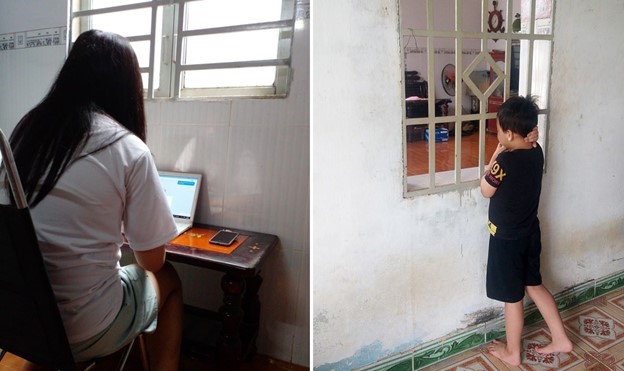
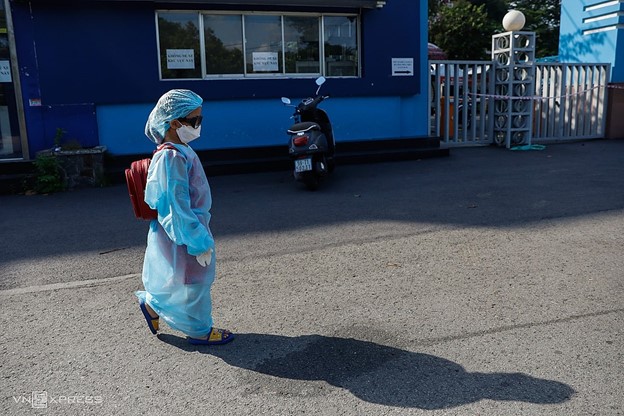
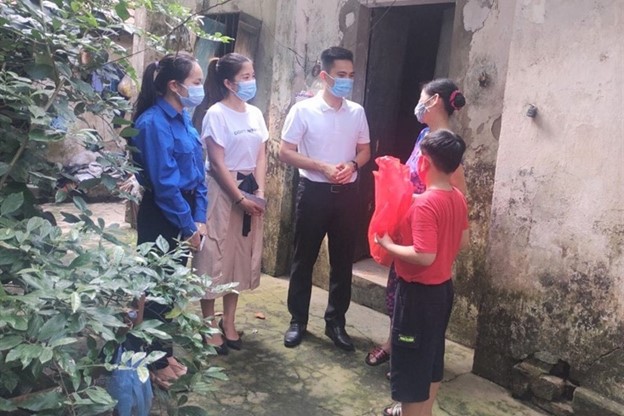

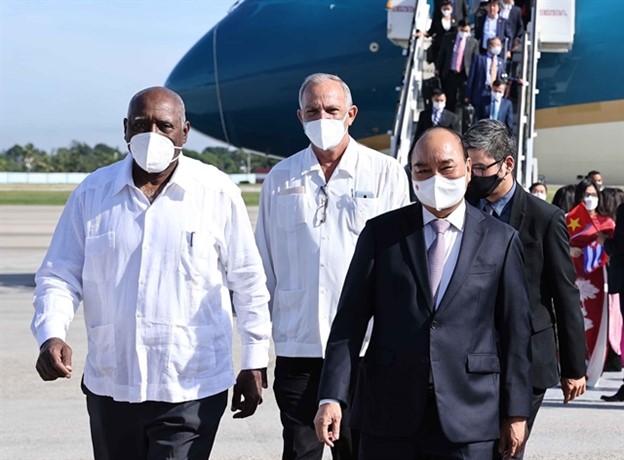

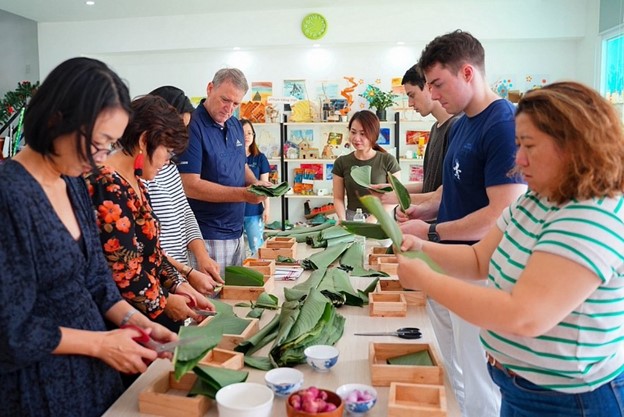
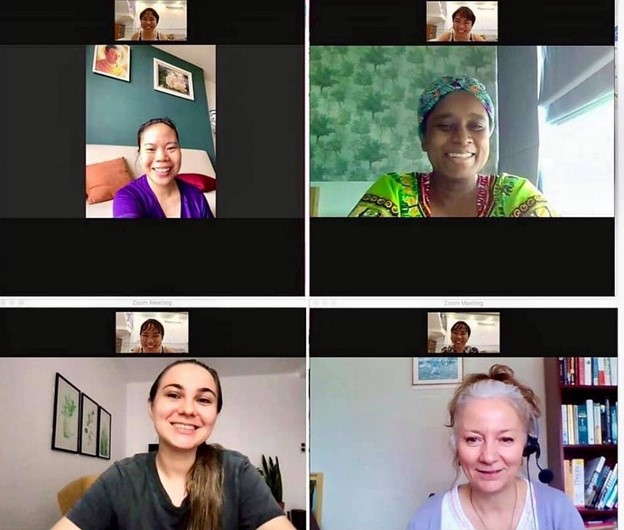

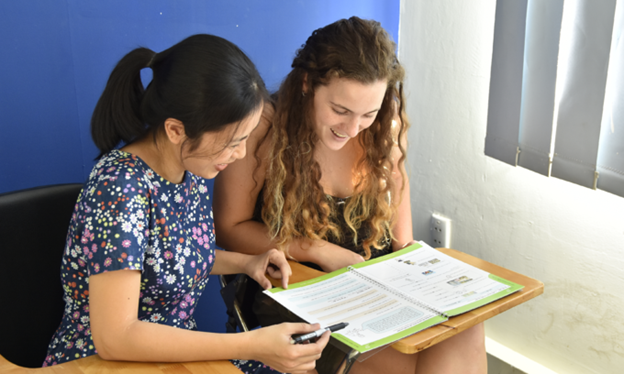
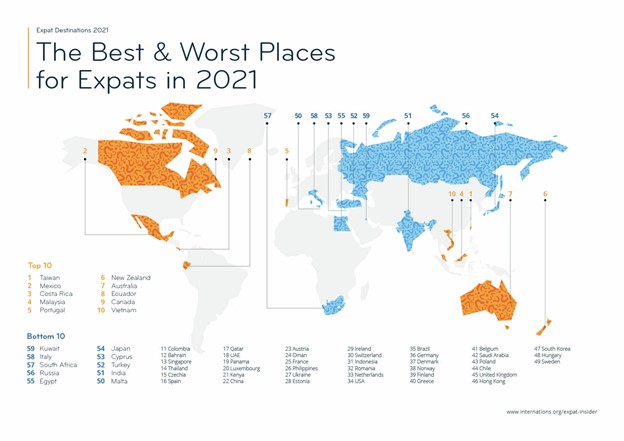
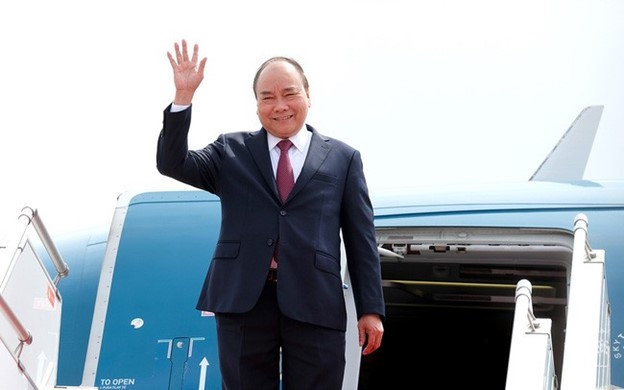
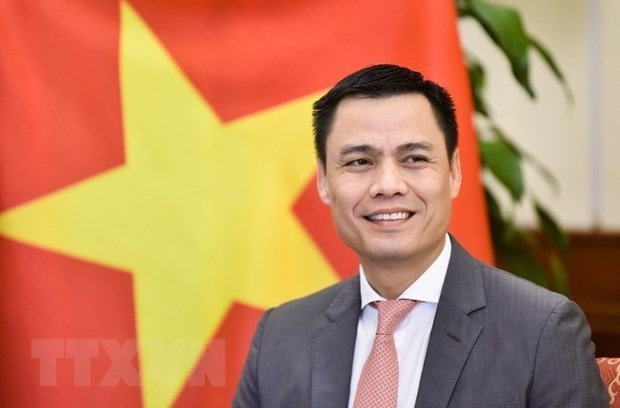

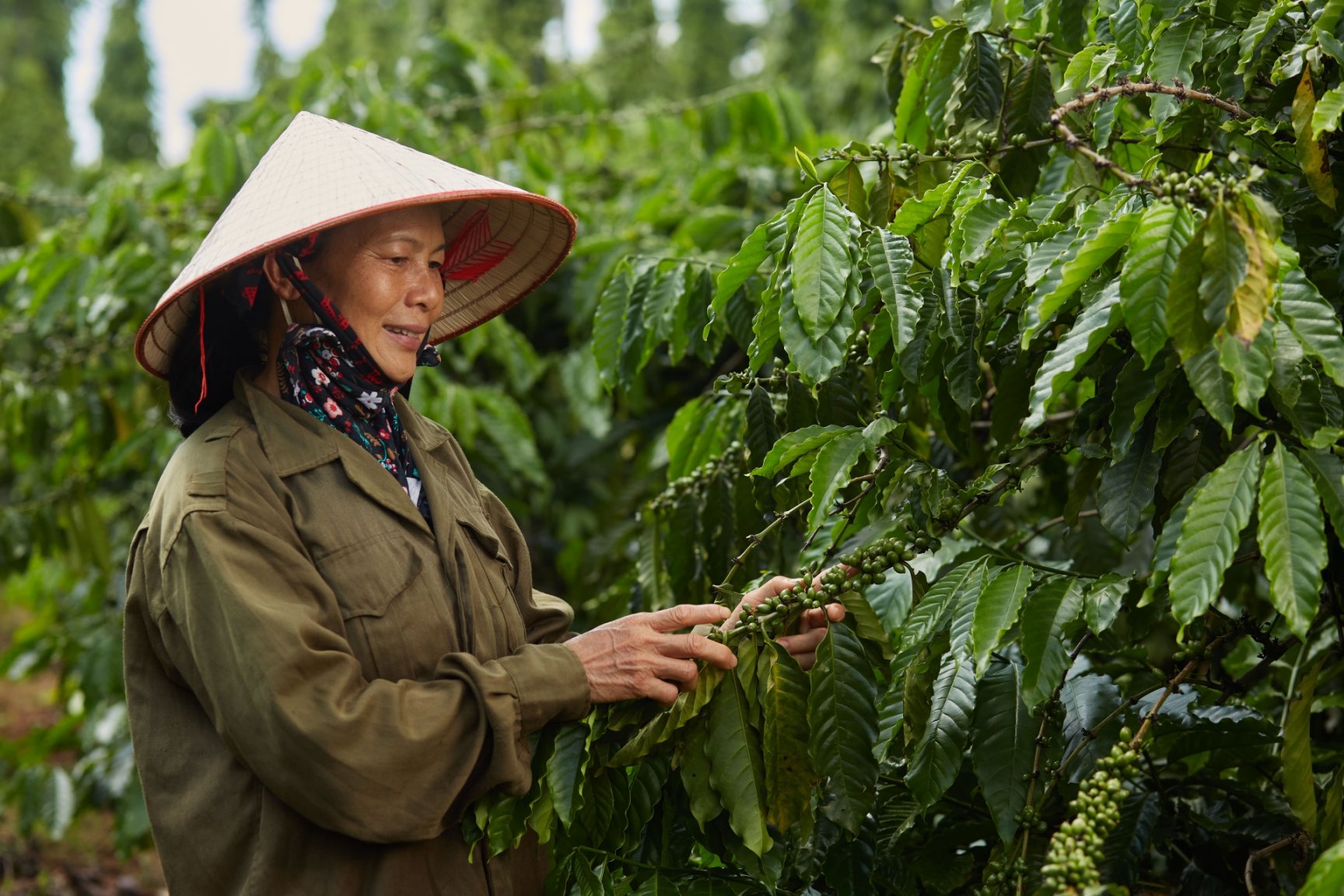
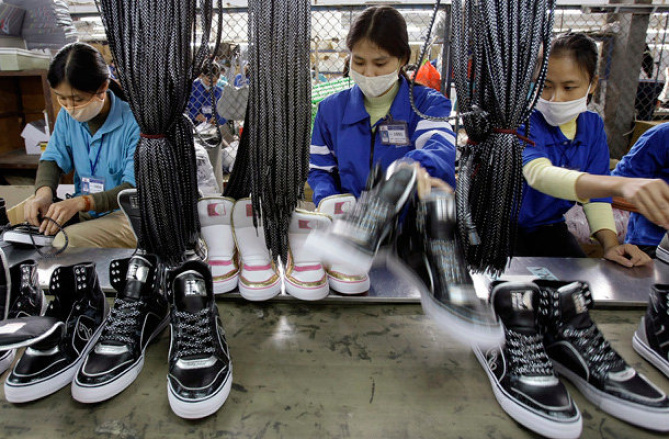
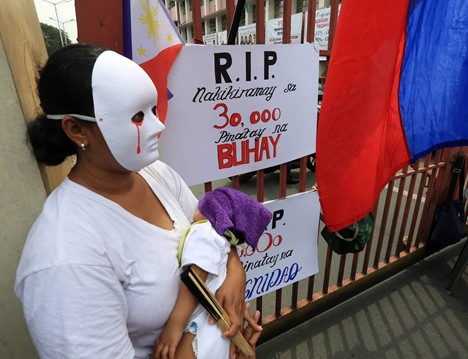
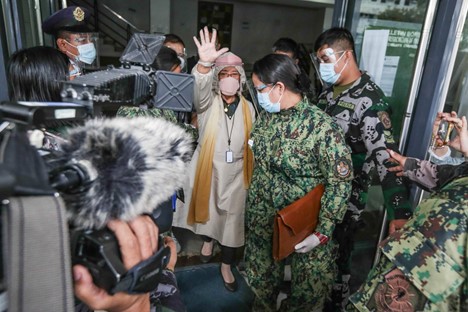
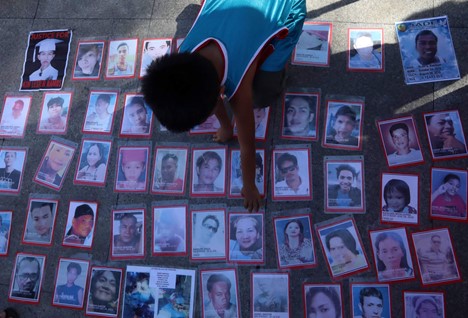
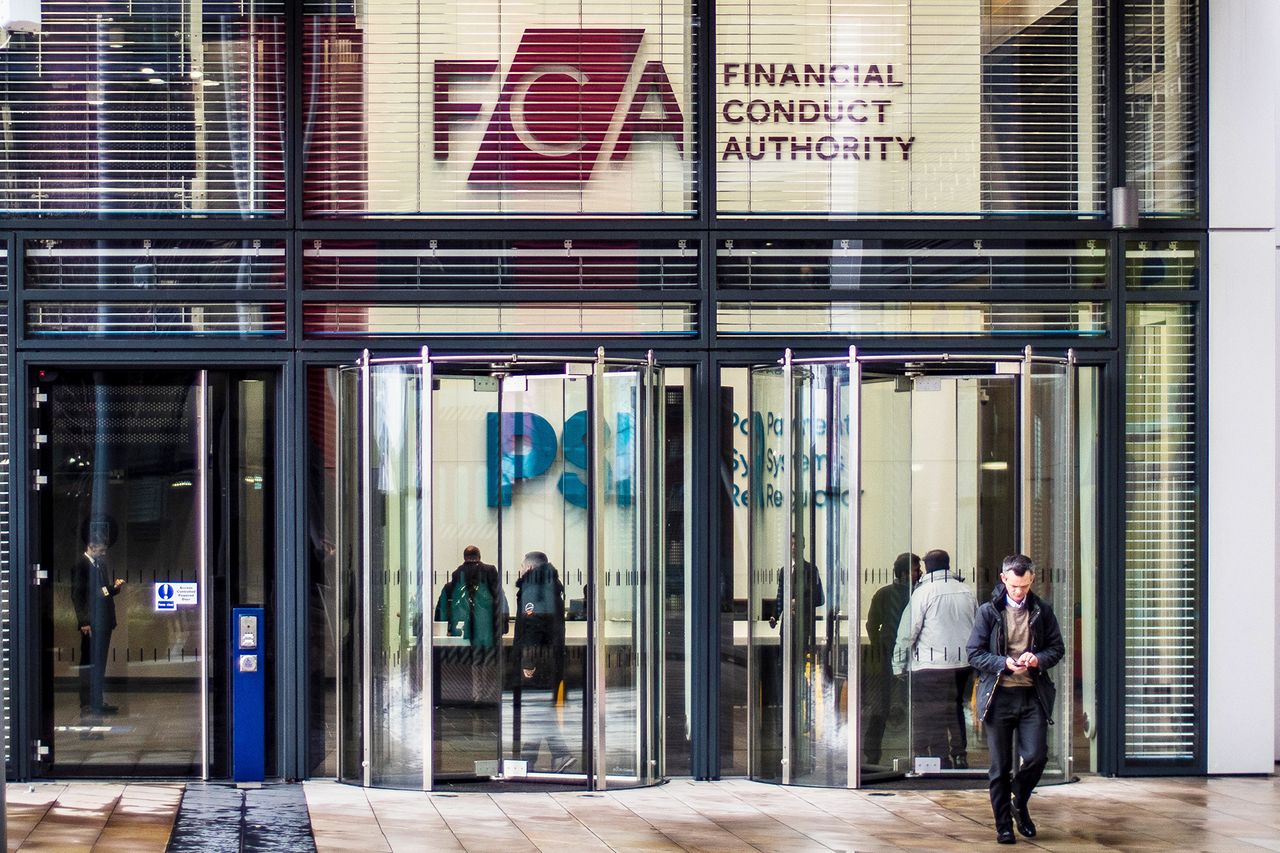
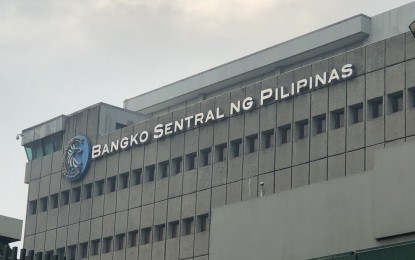
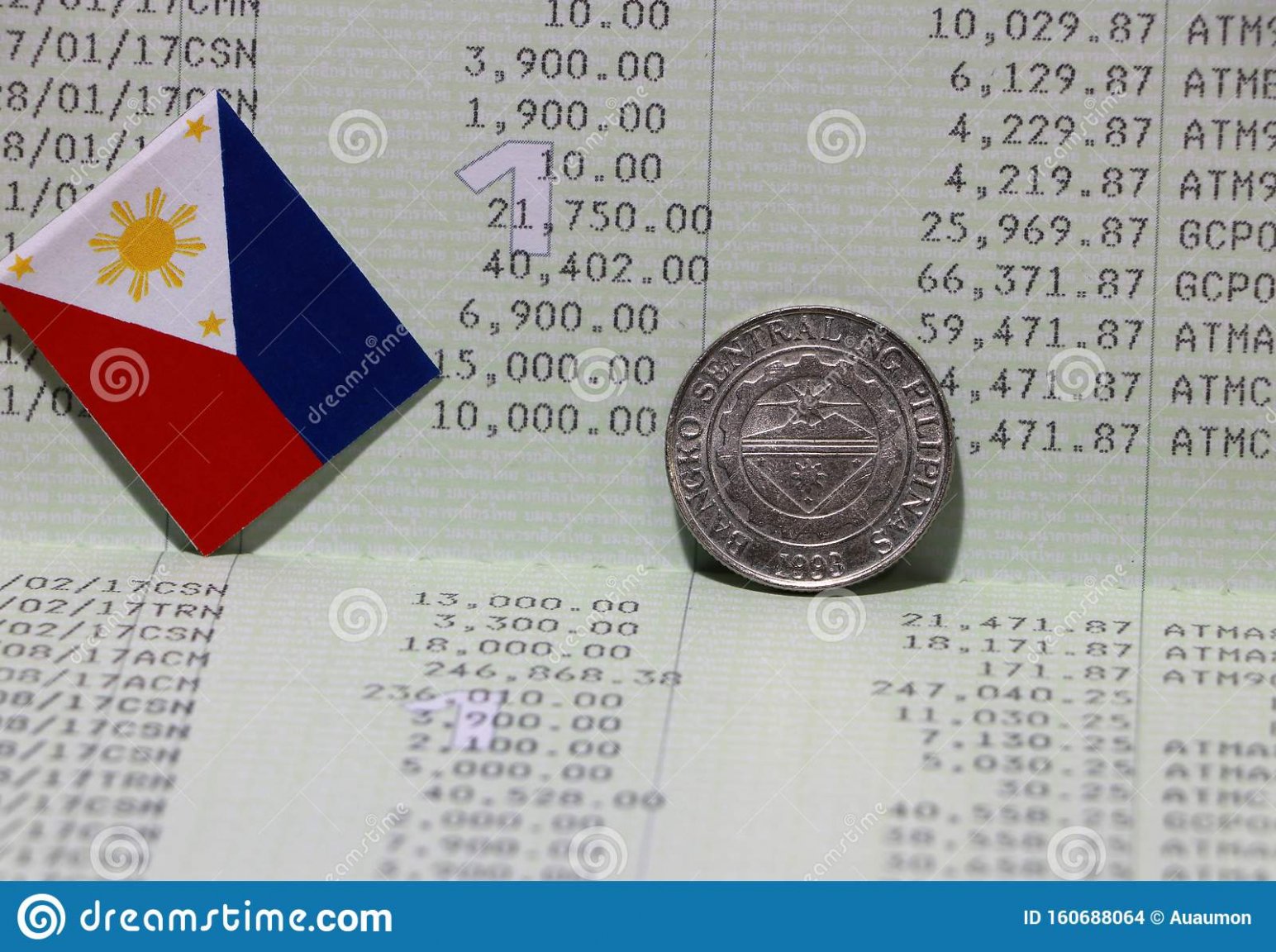
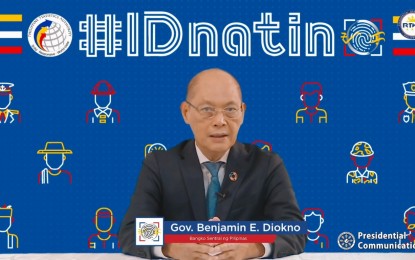

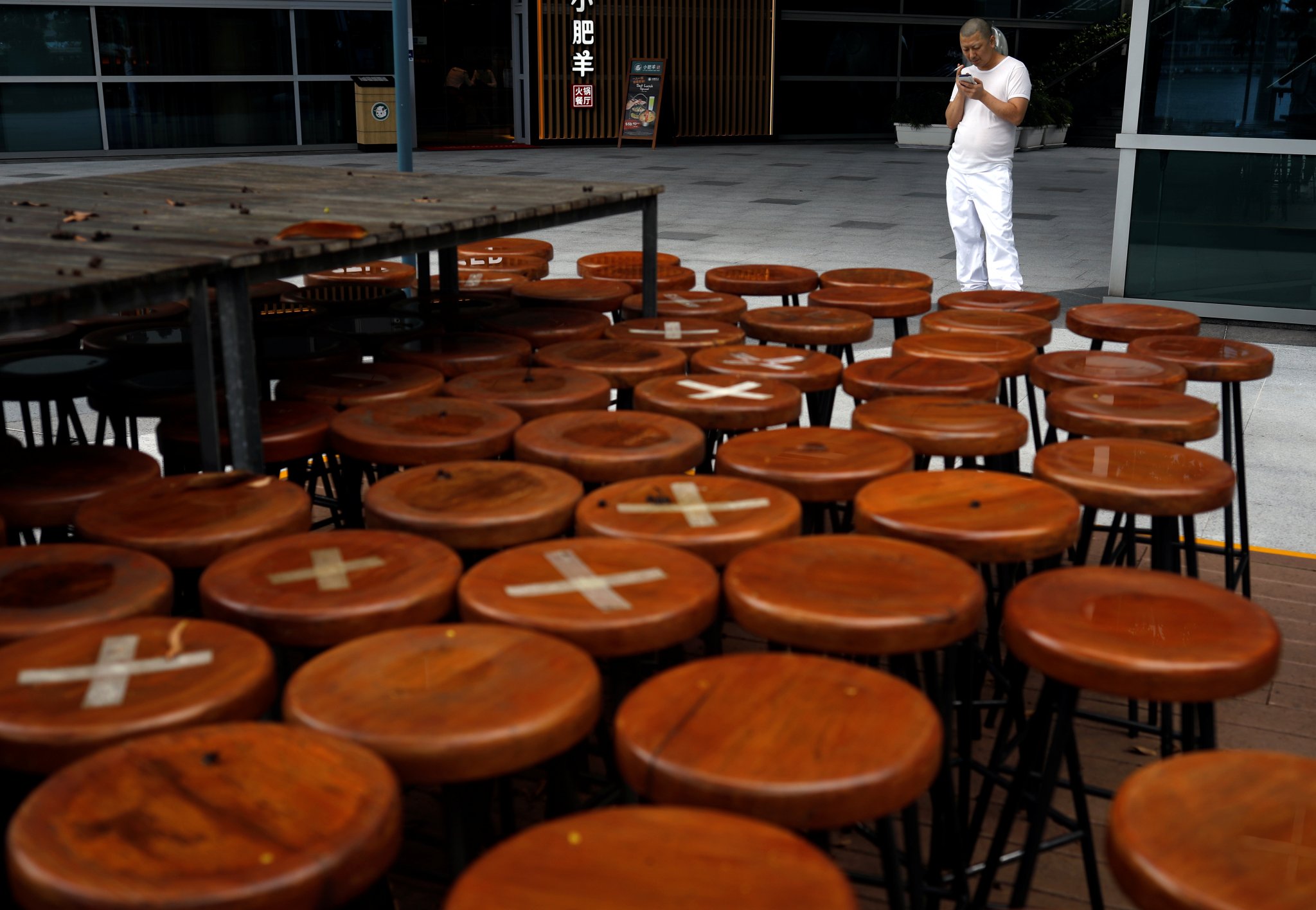
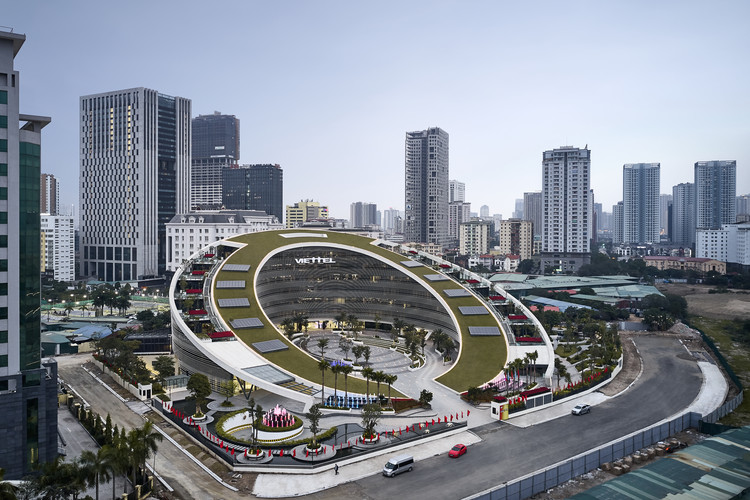

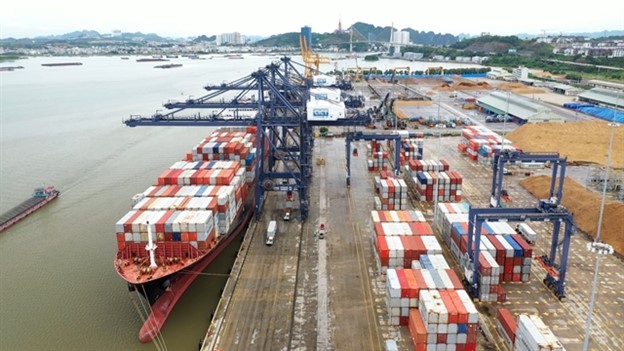
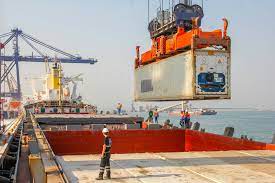
.jpg.8aca9b9955e4a3c42ea467a7fdef4c90.jpg)
